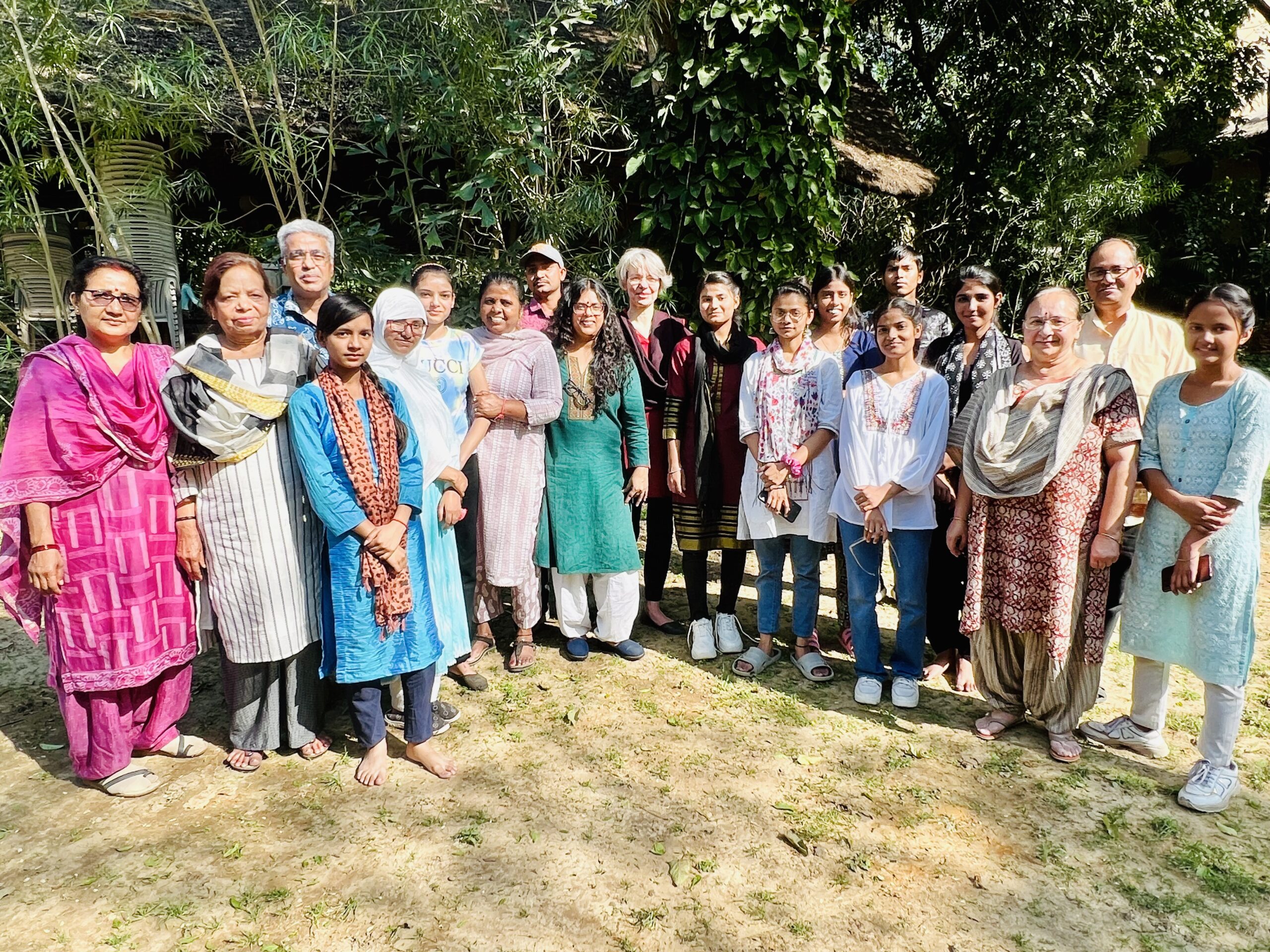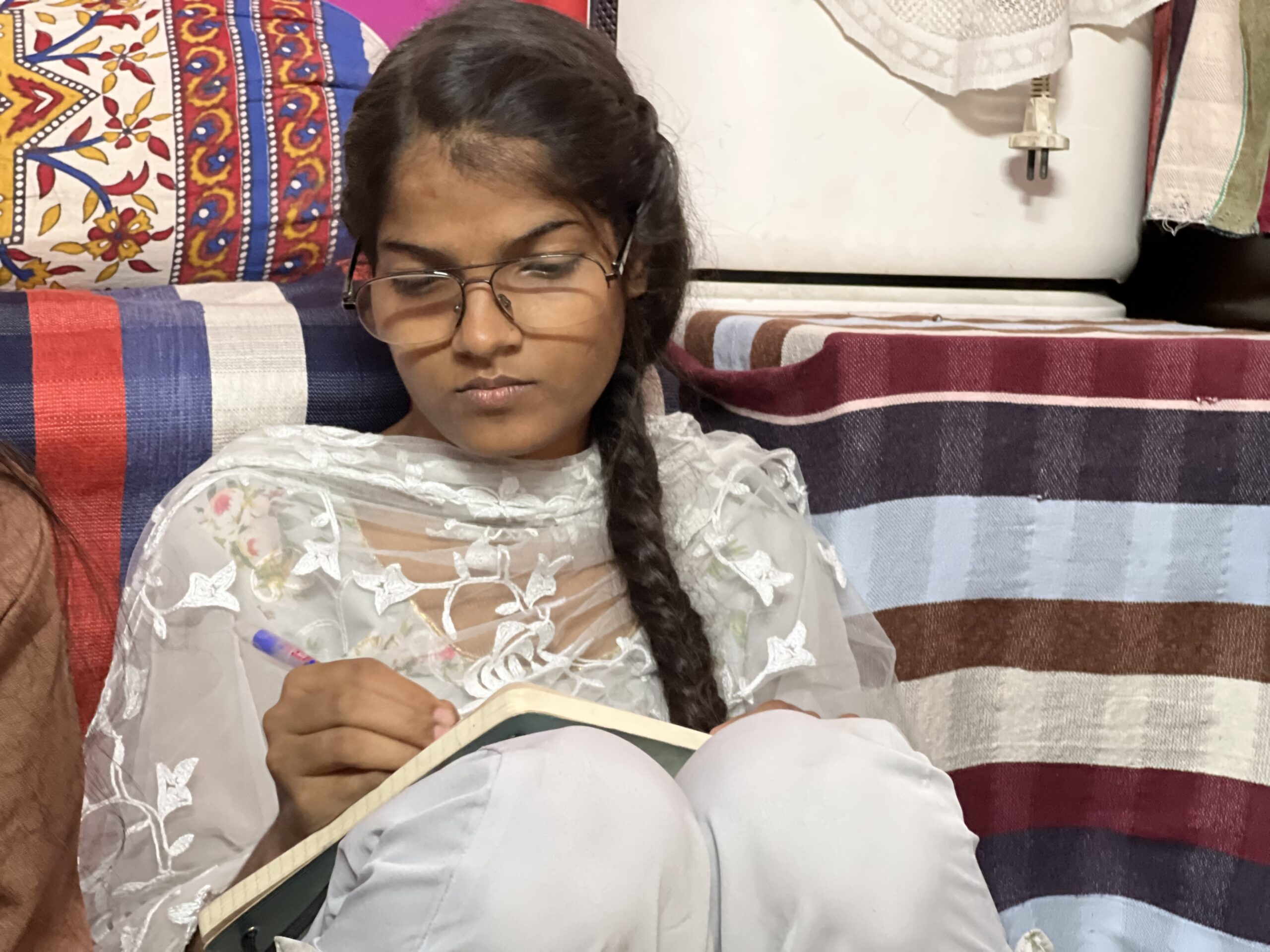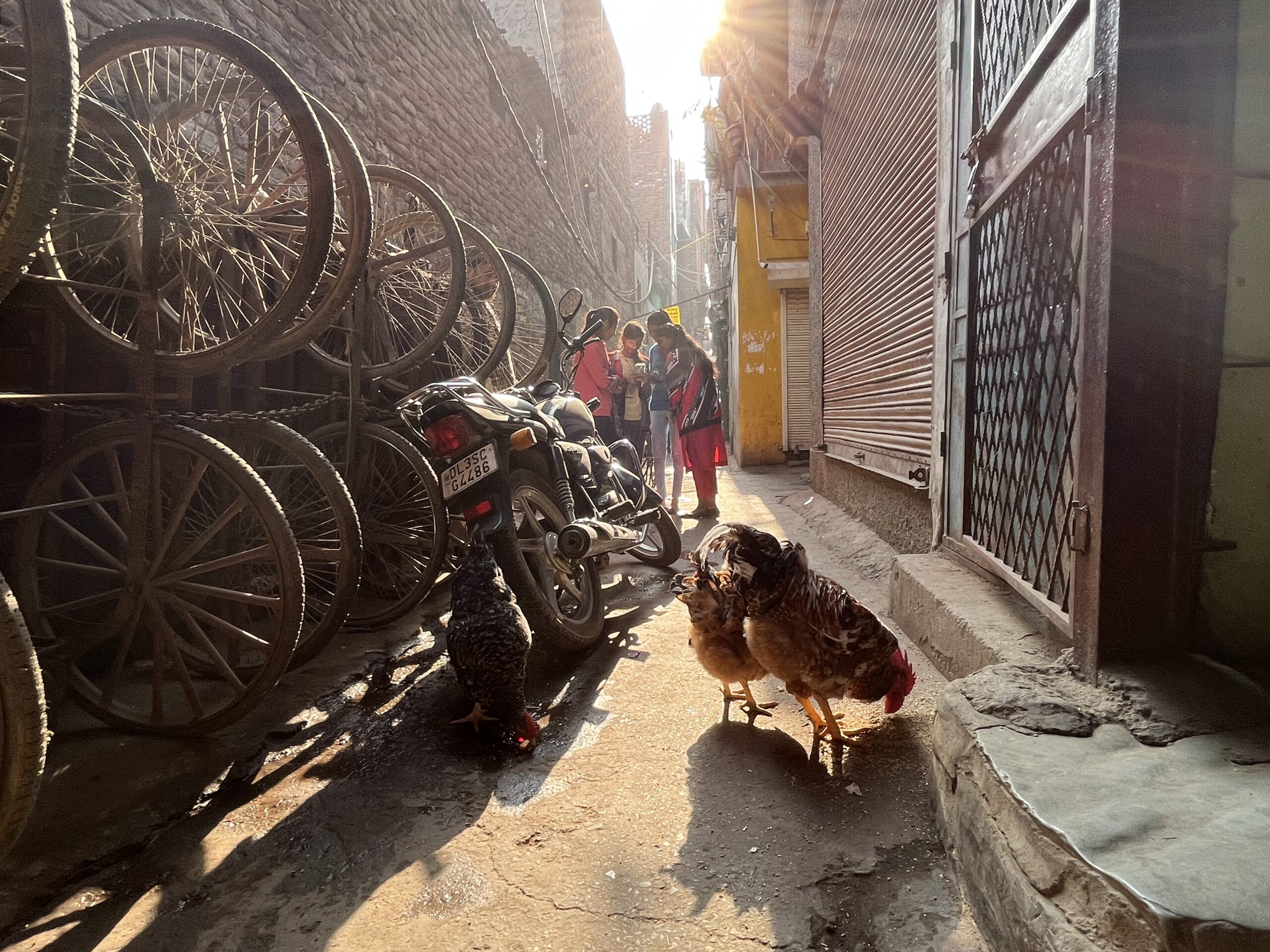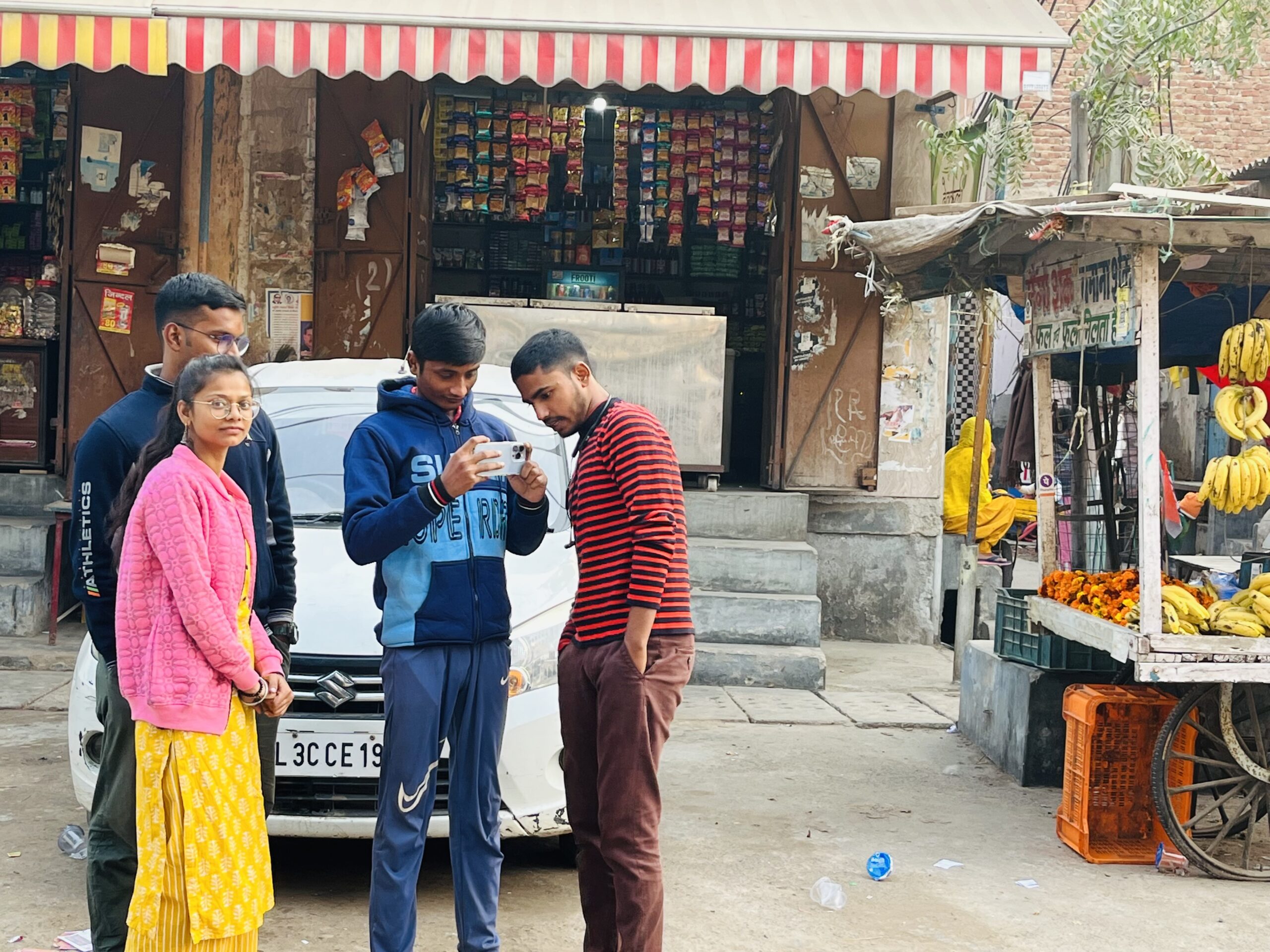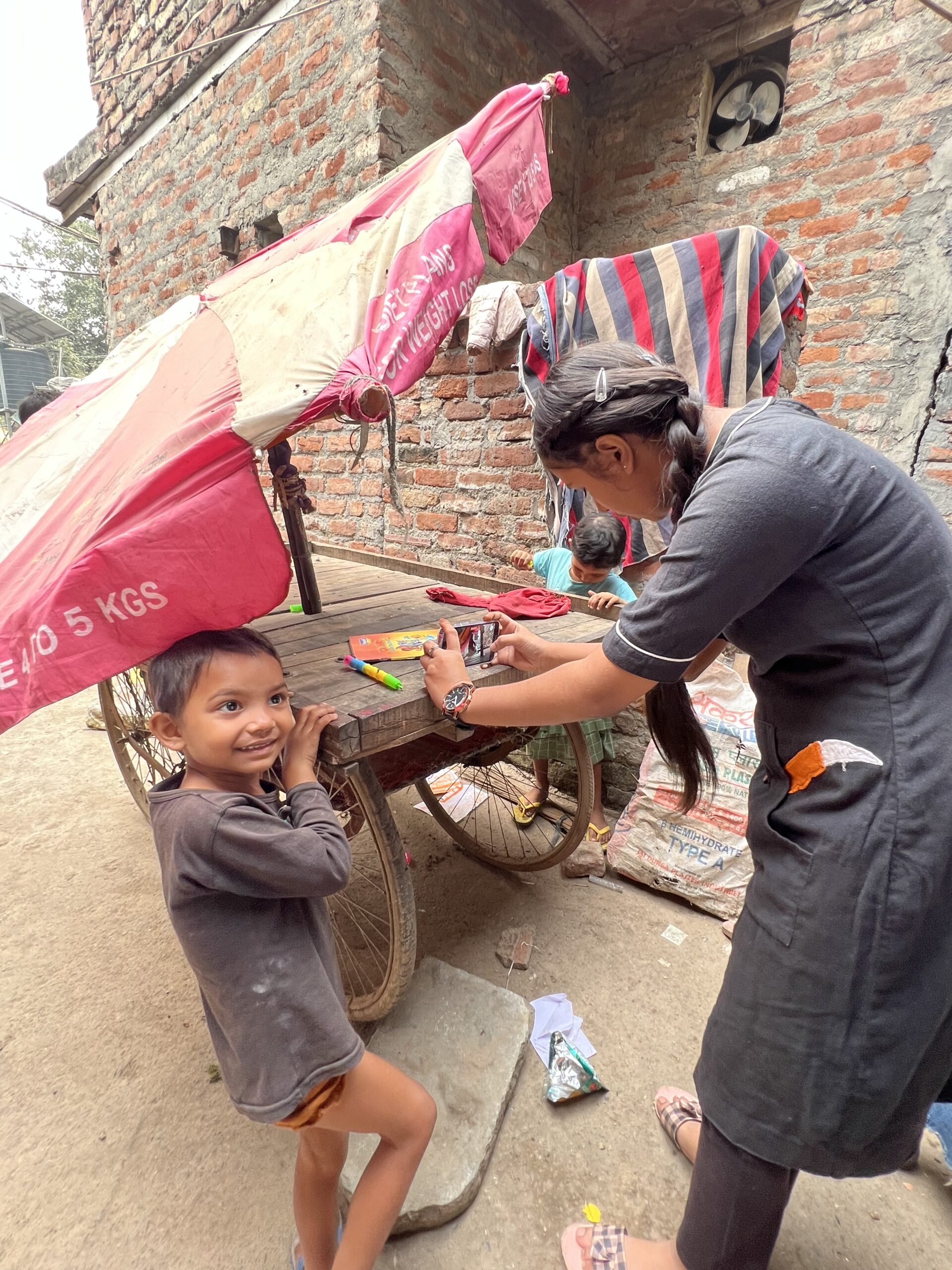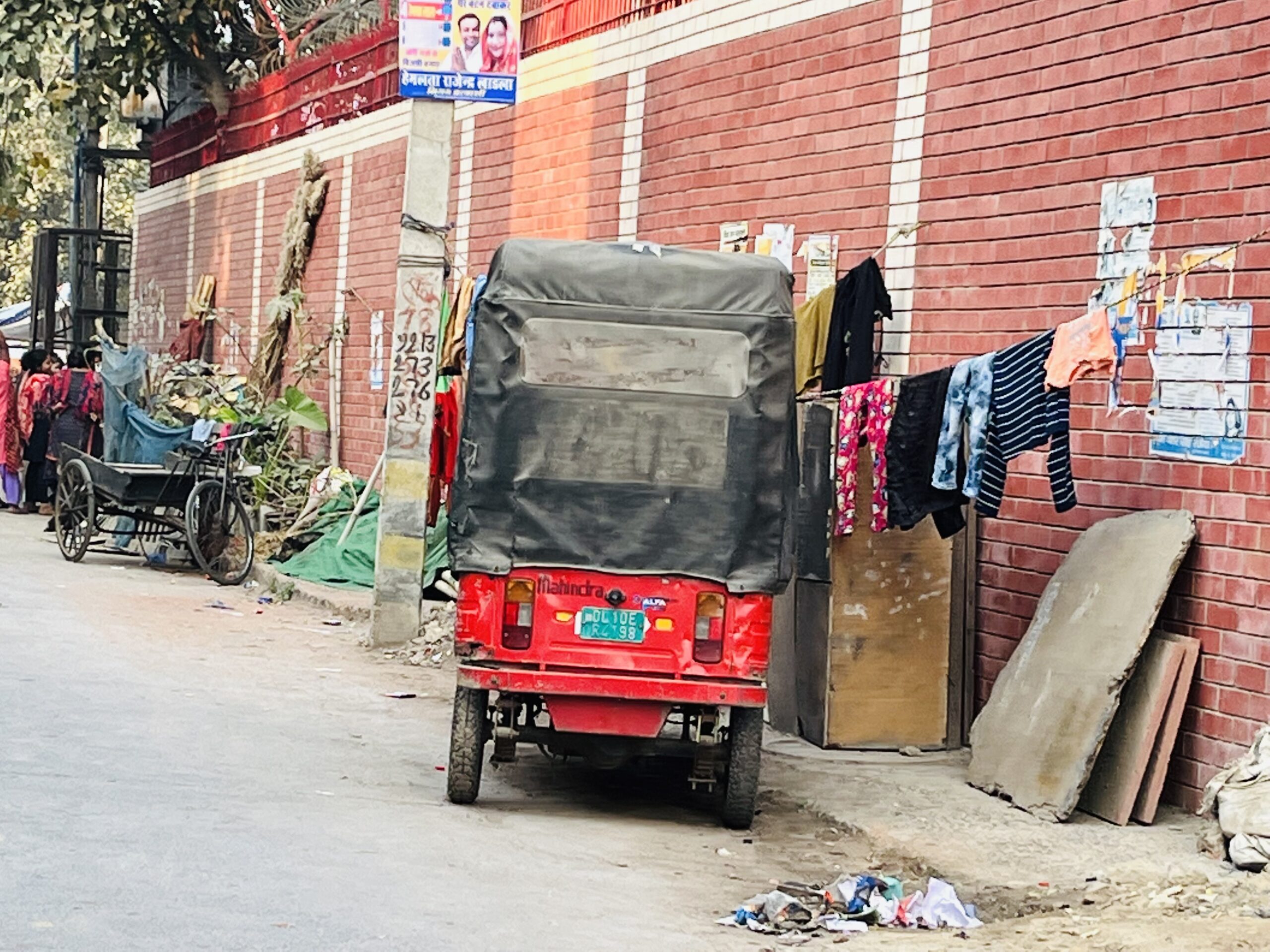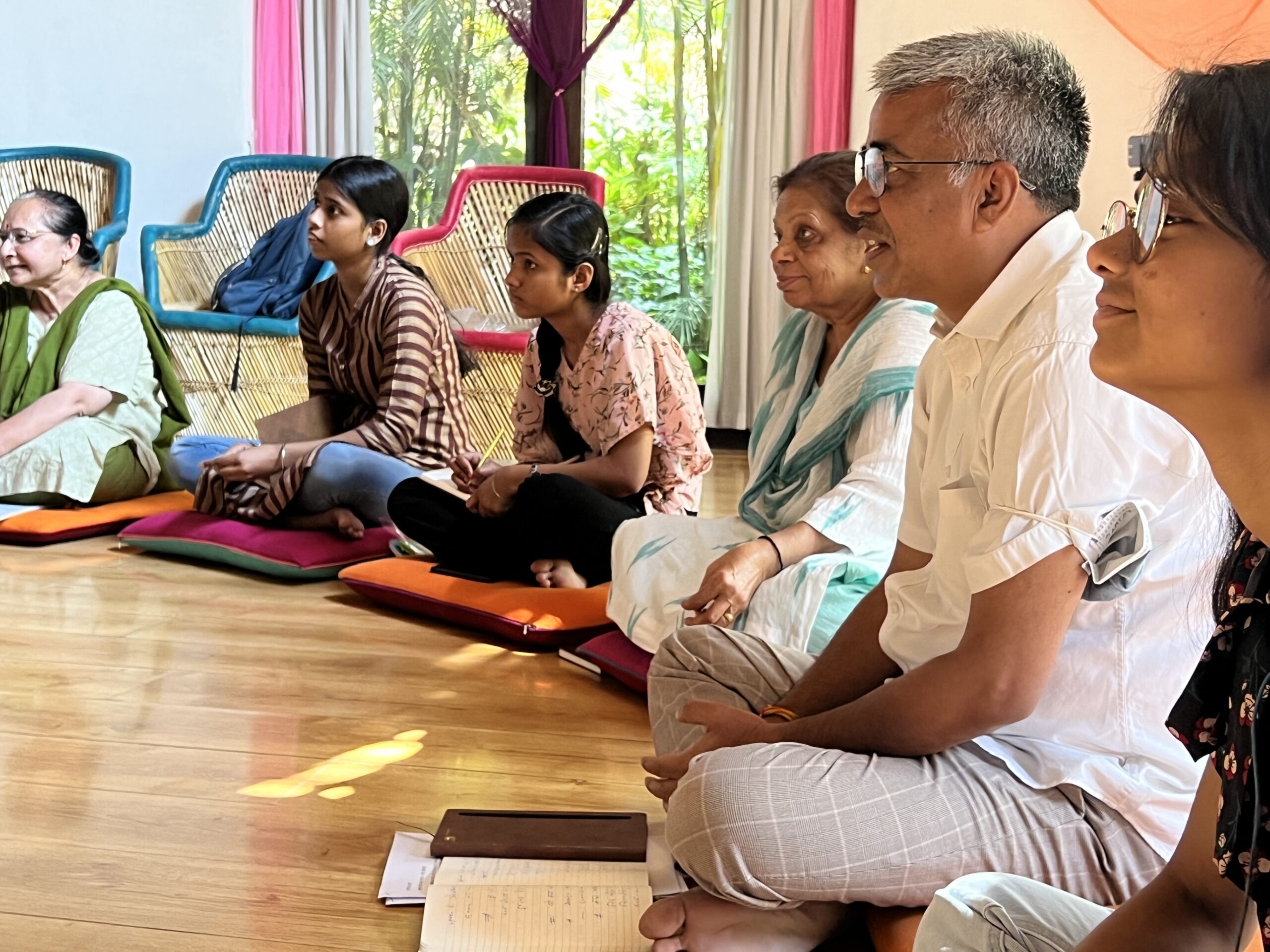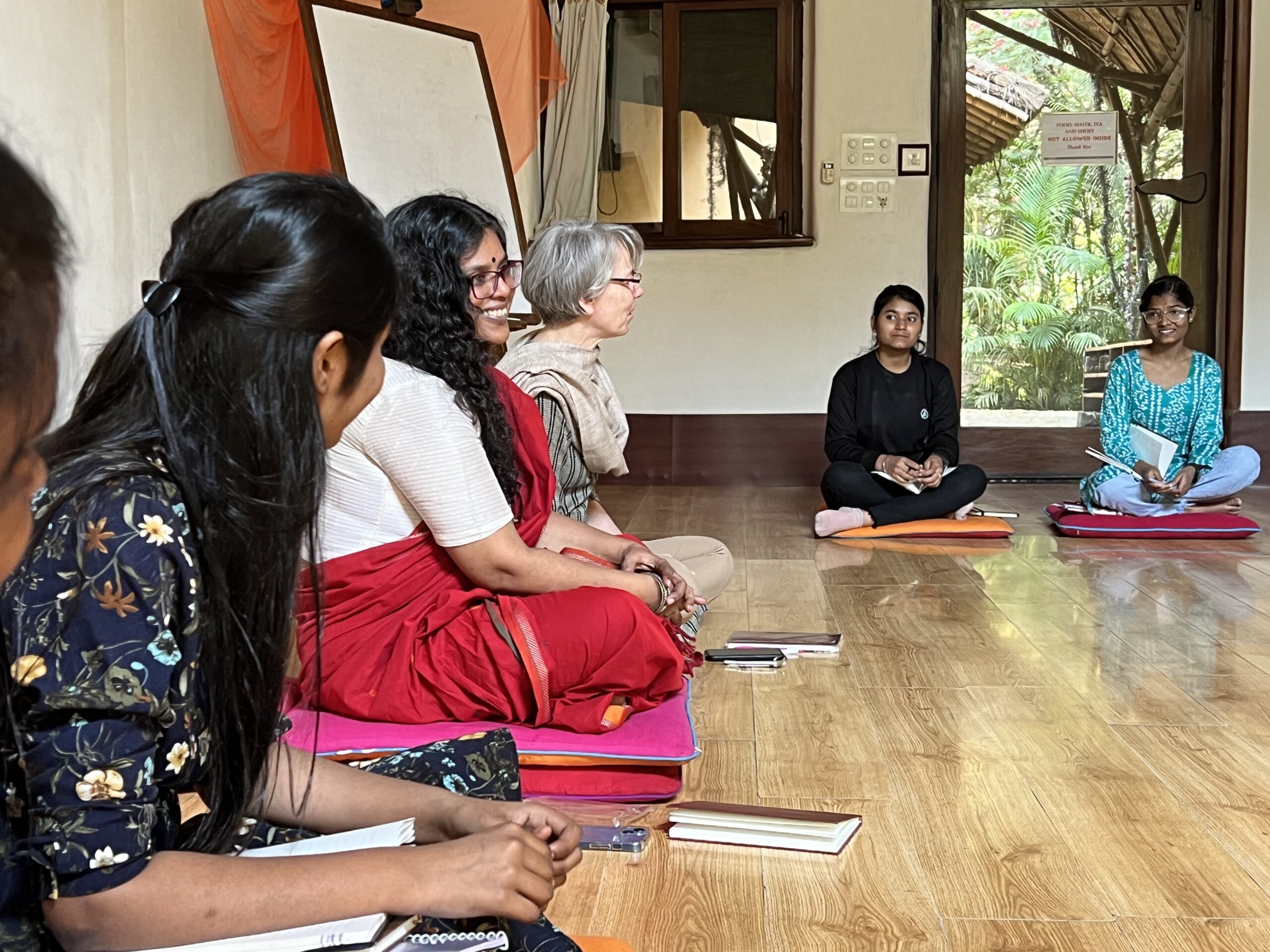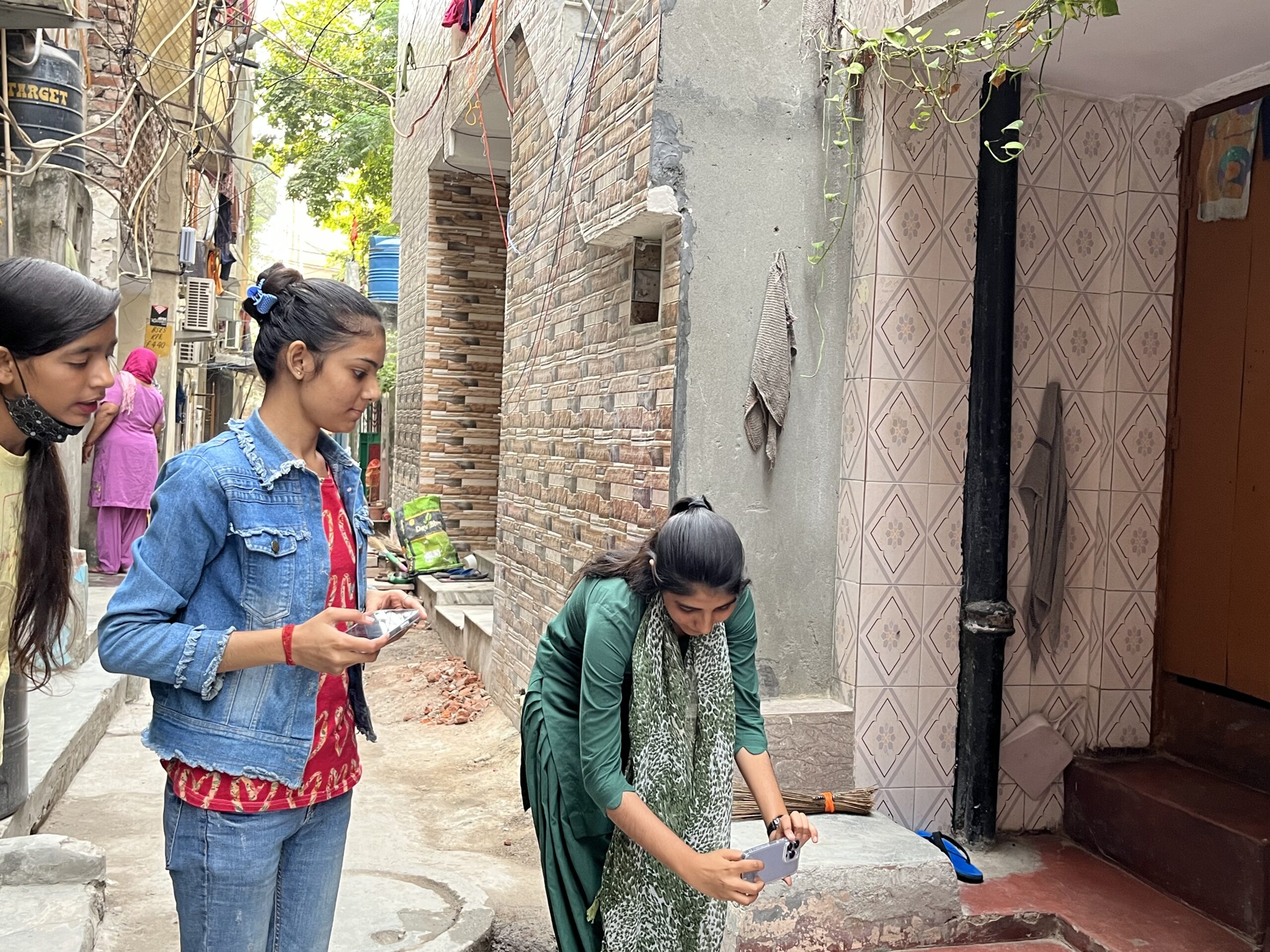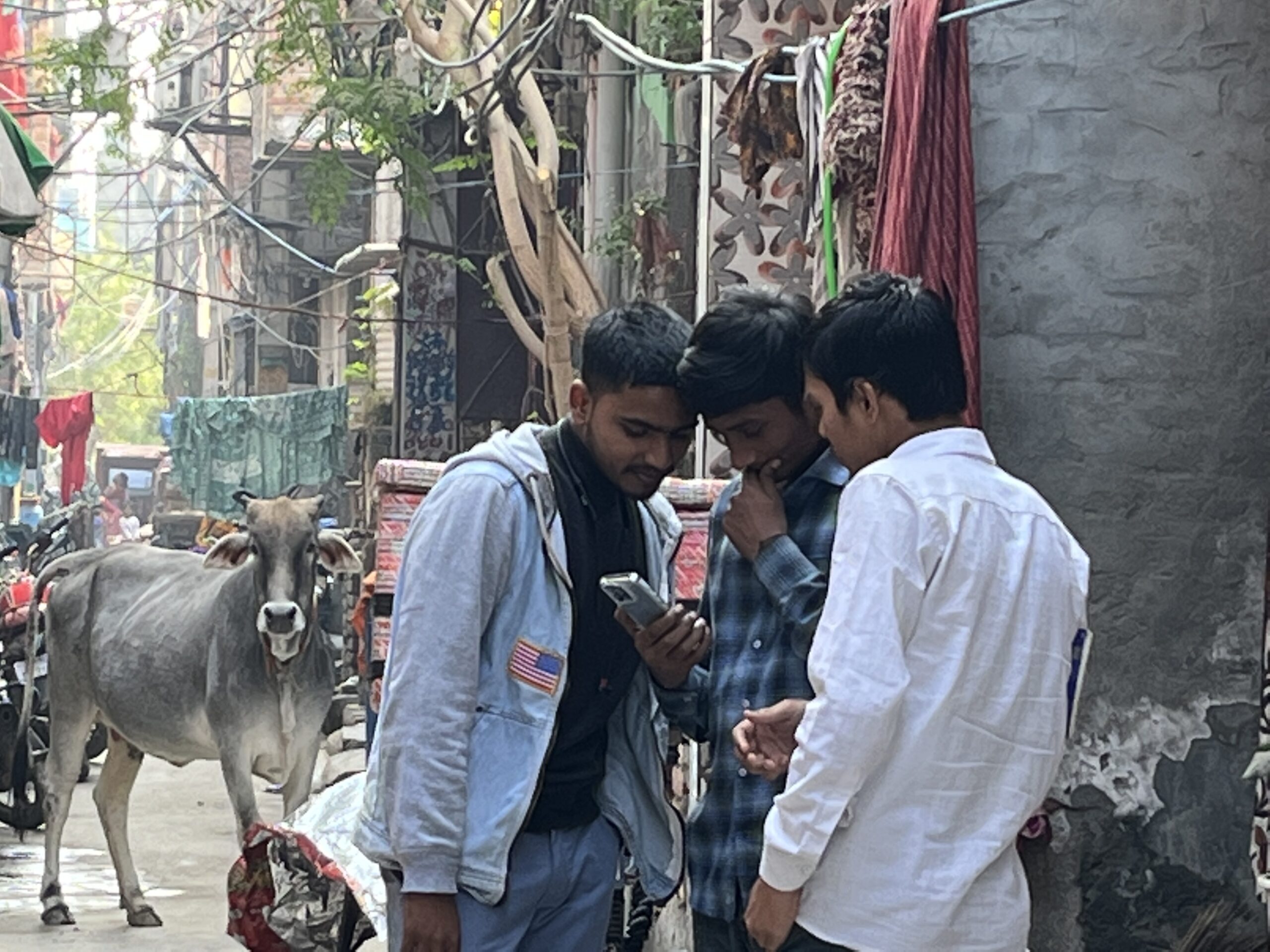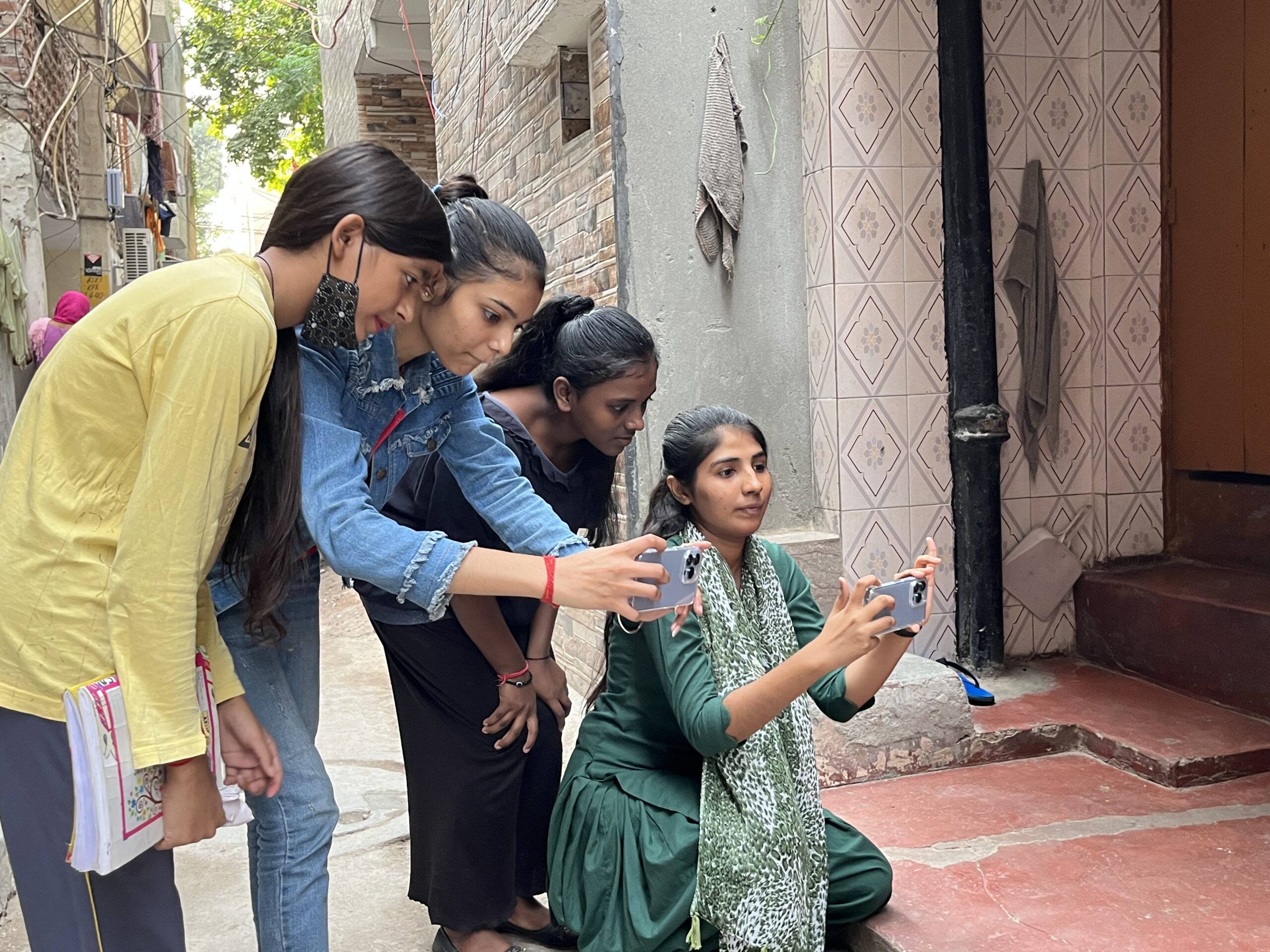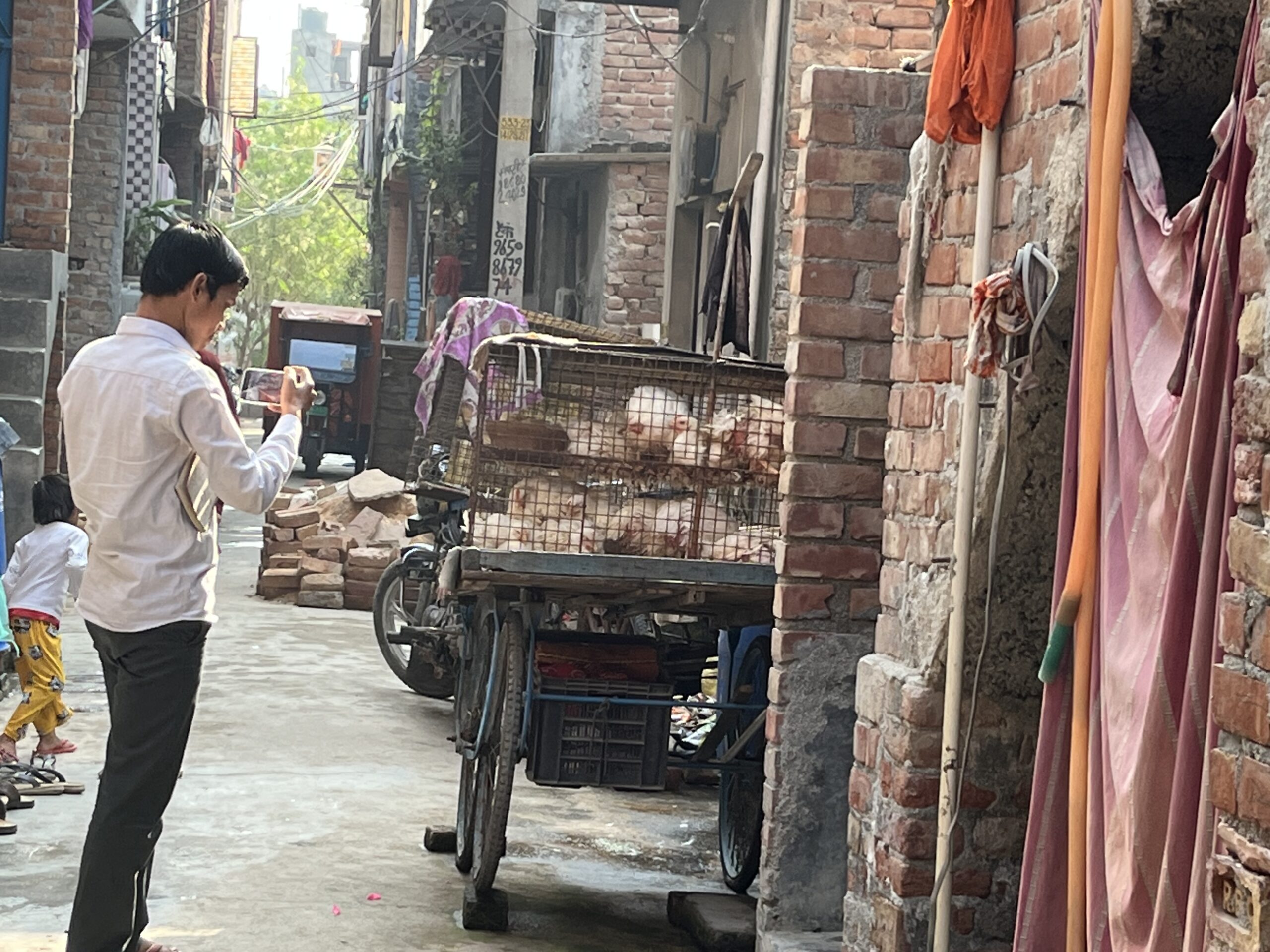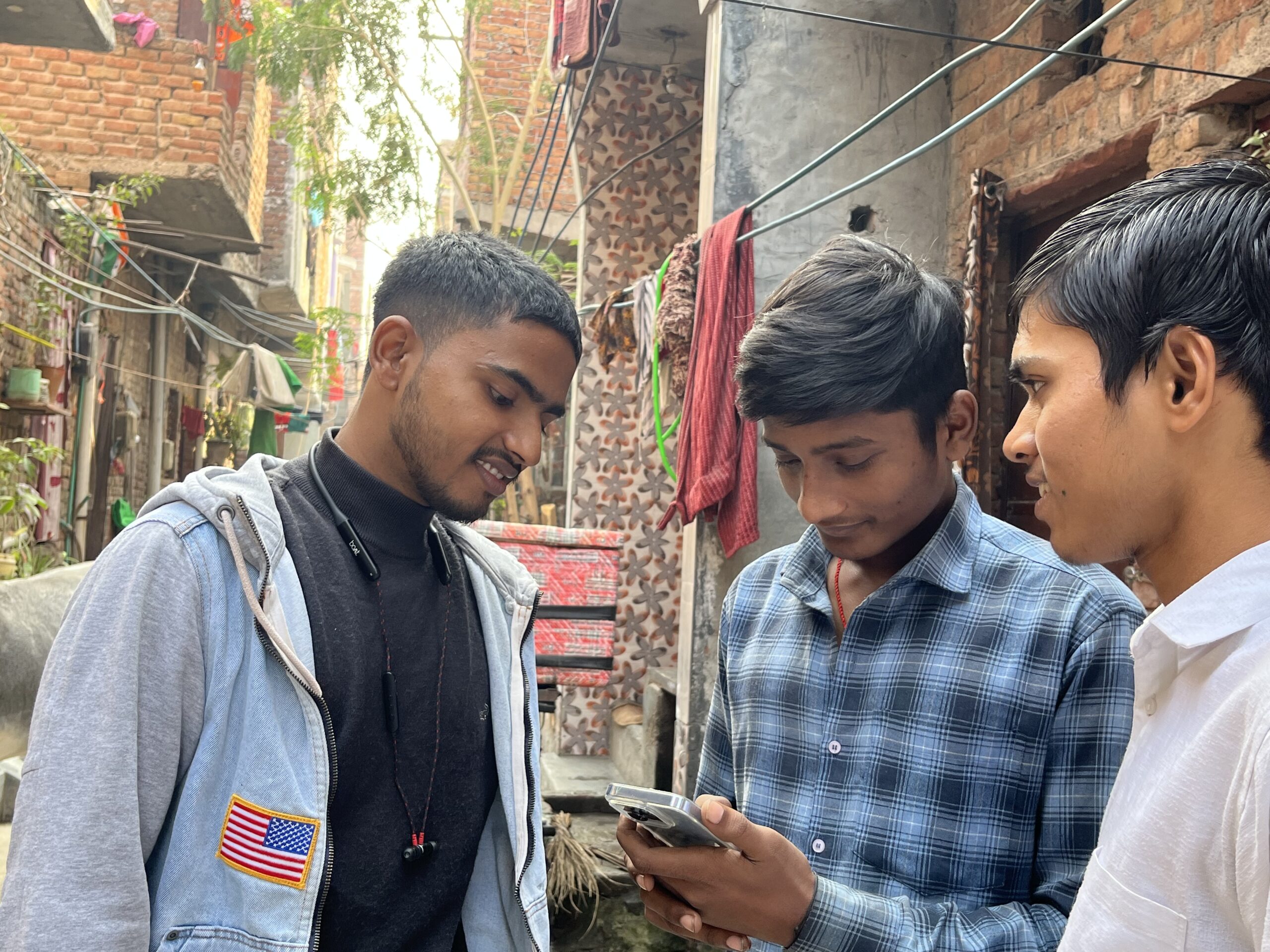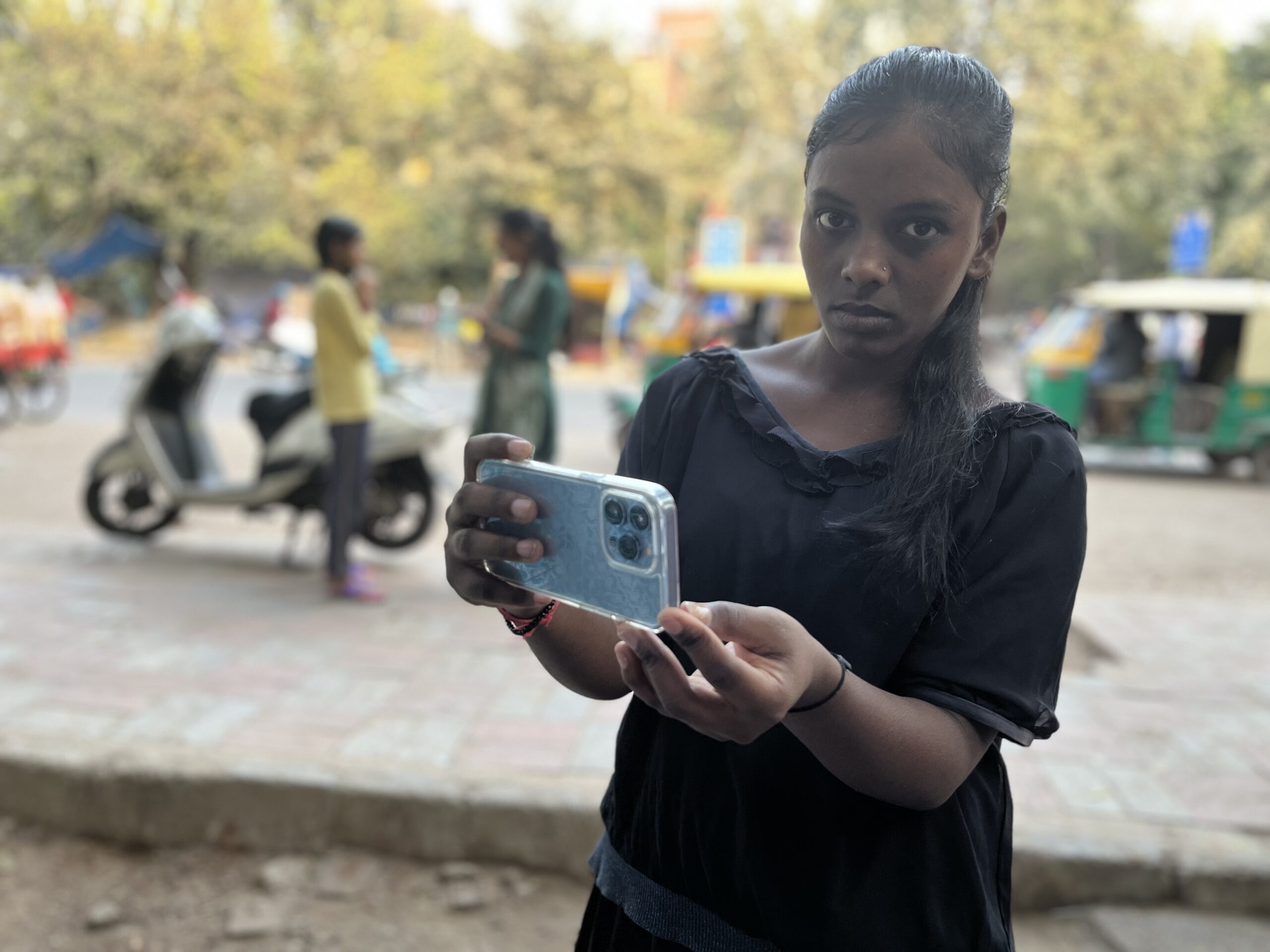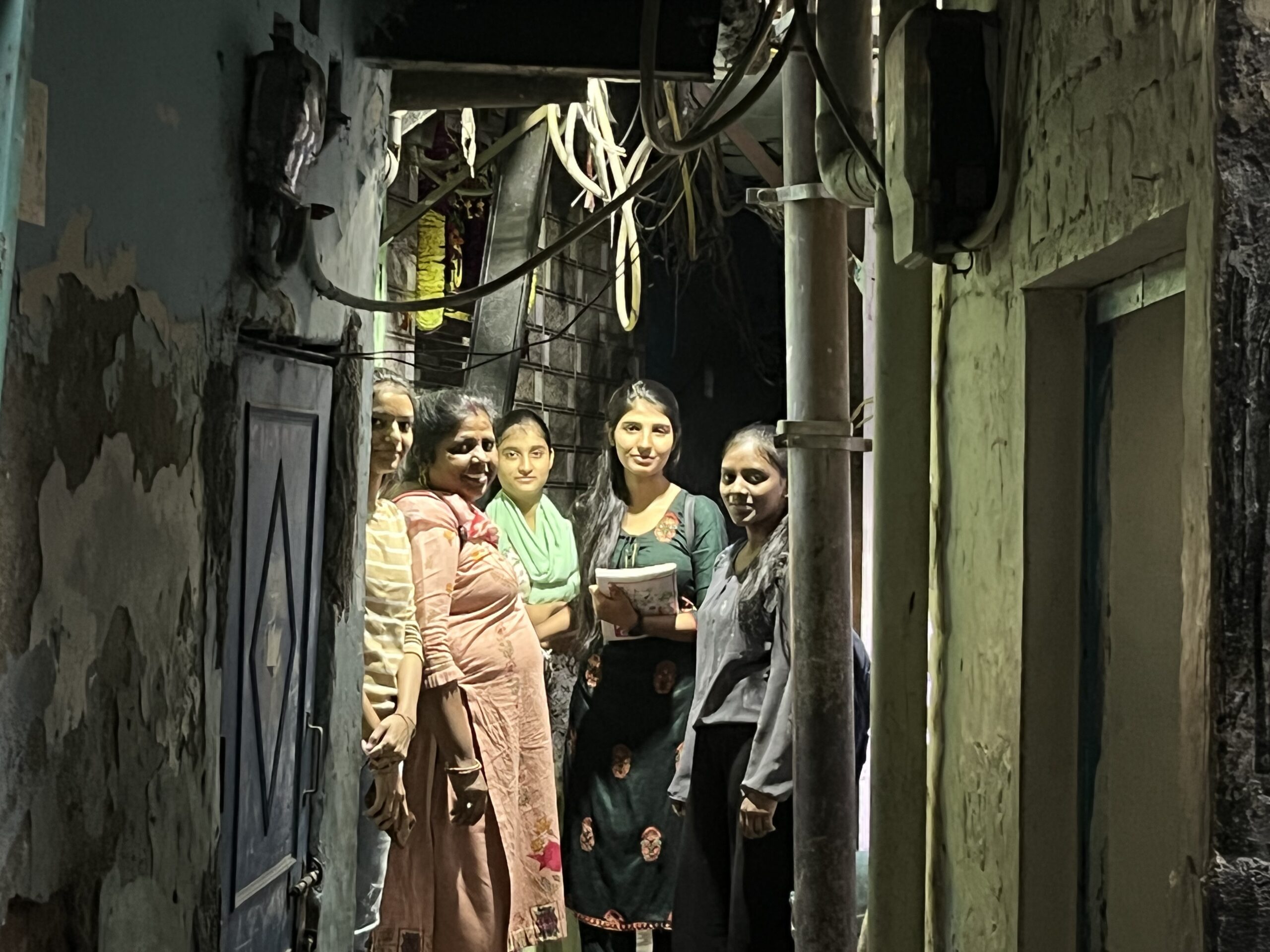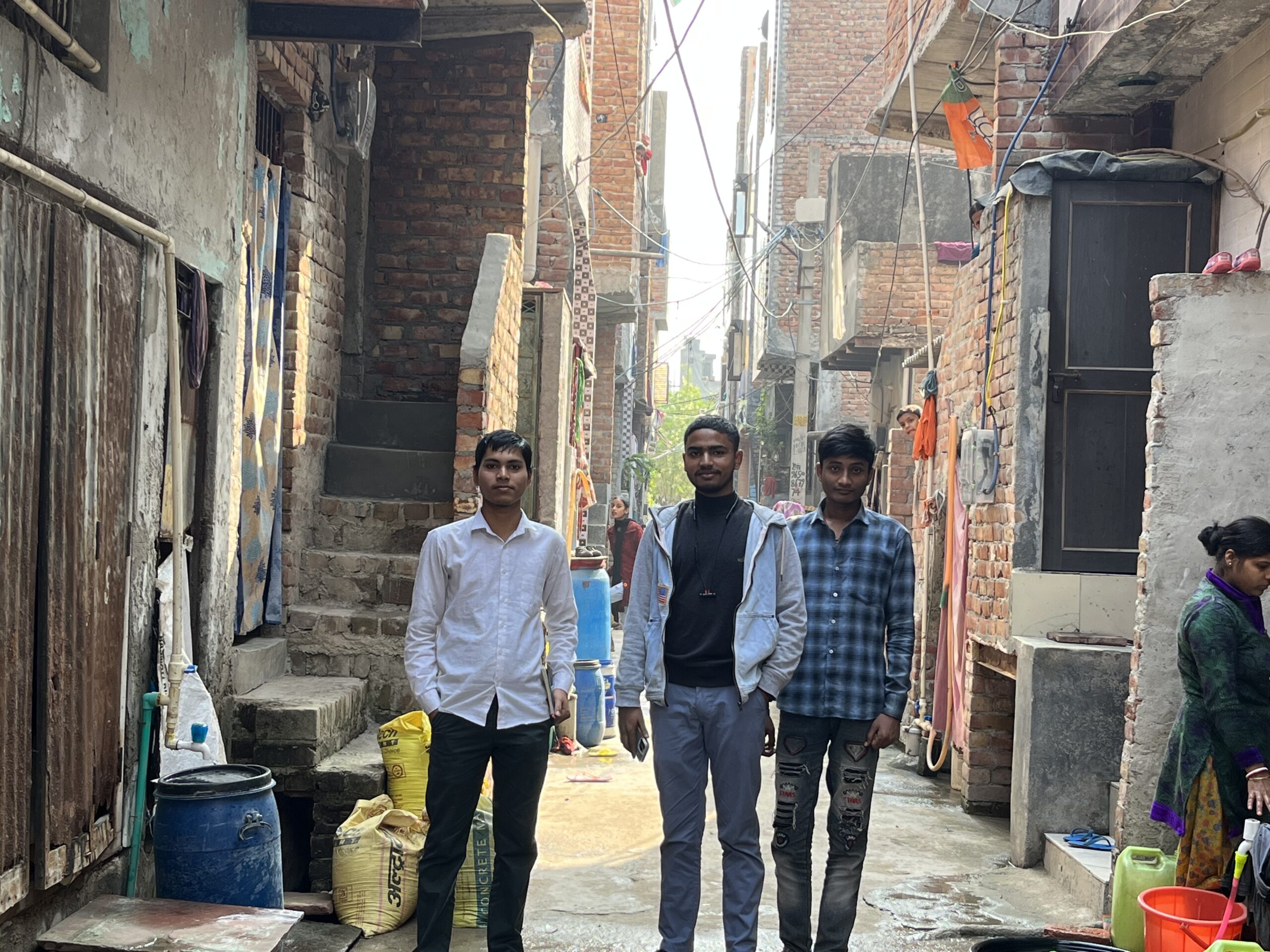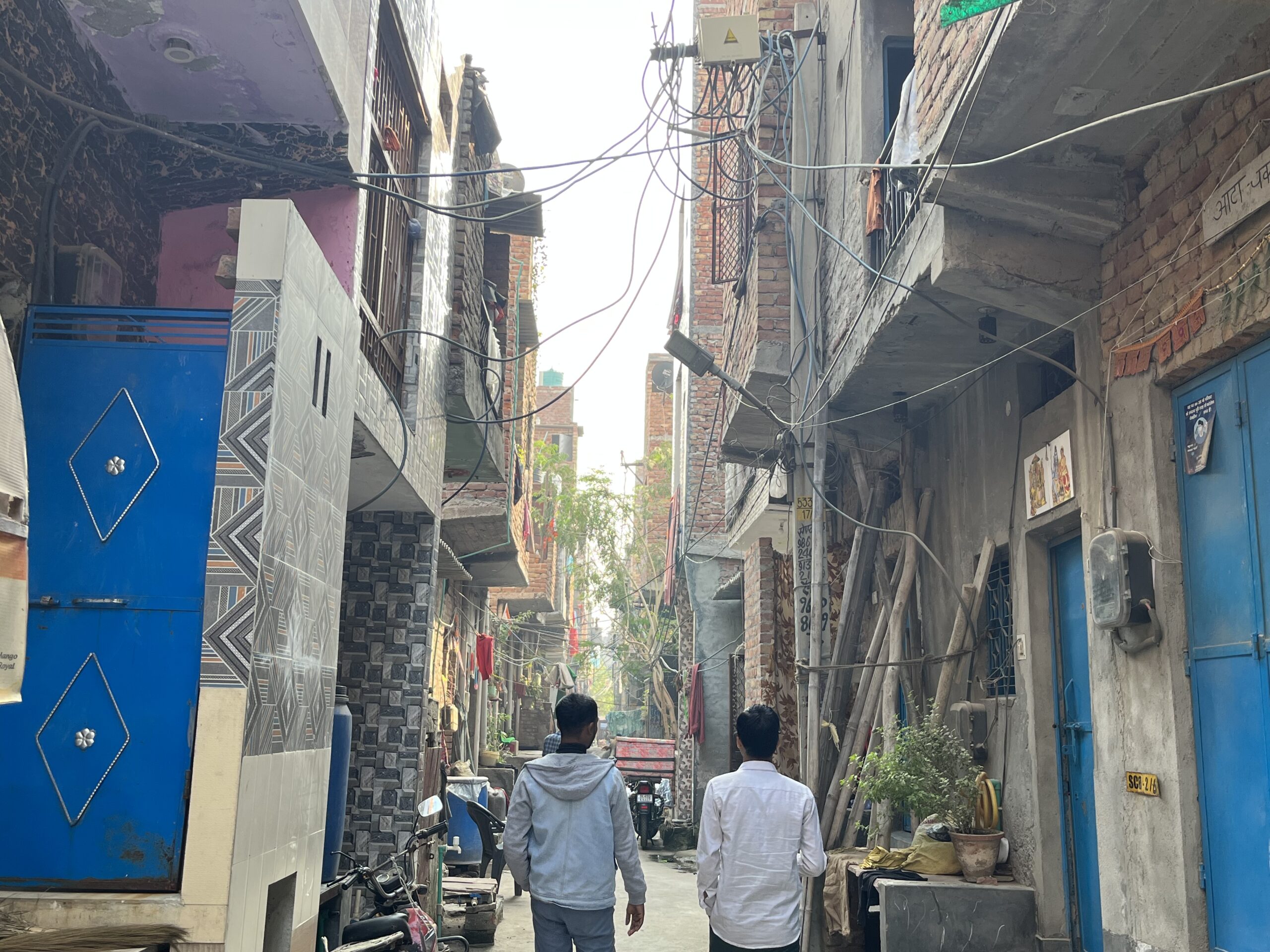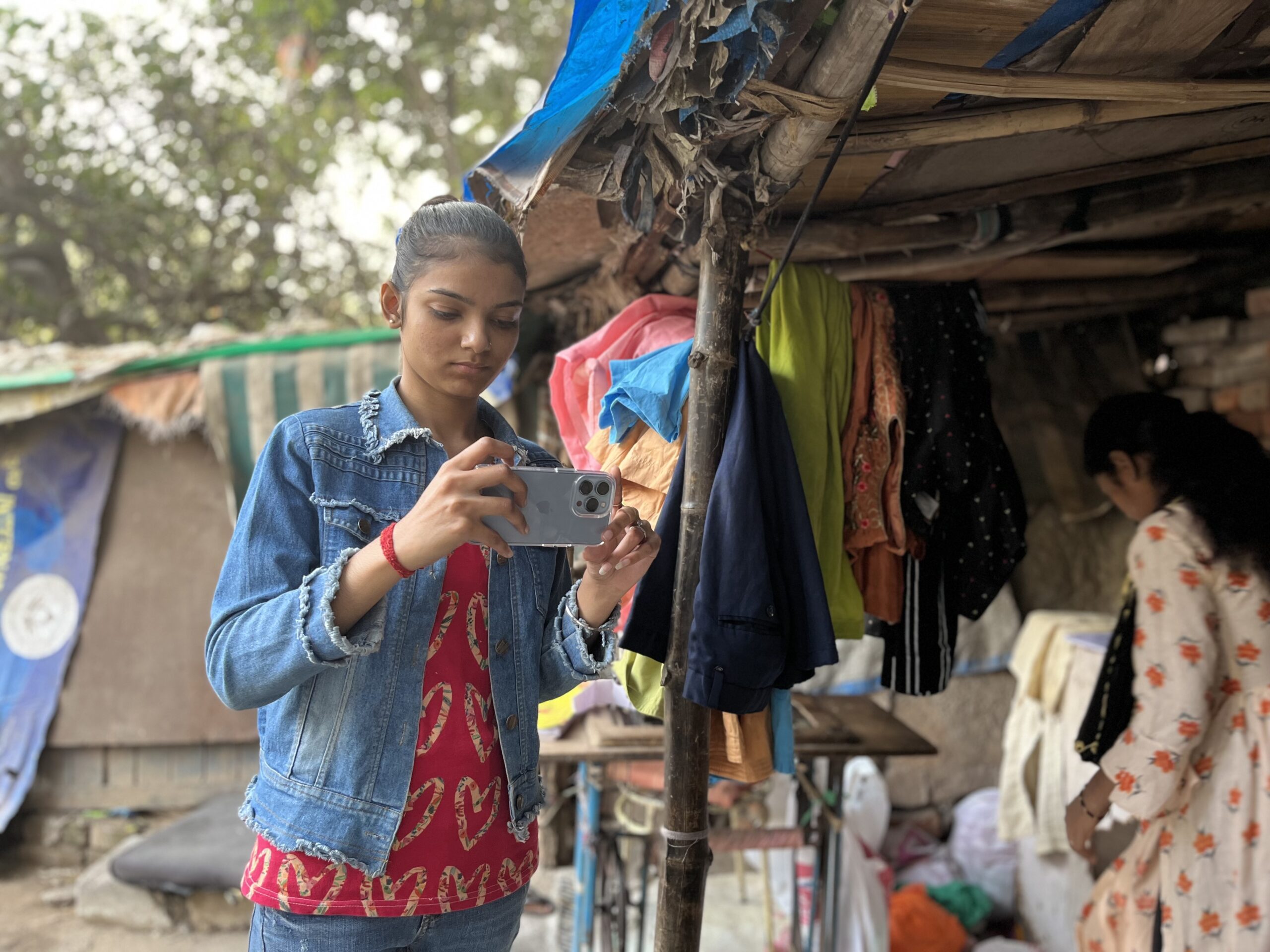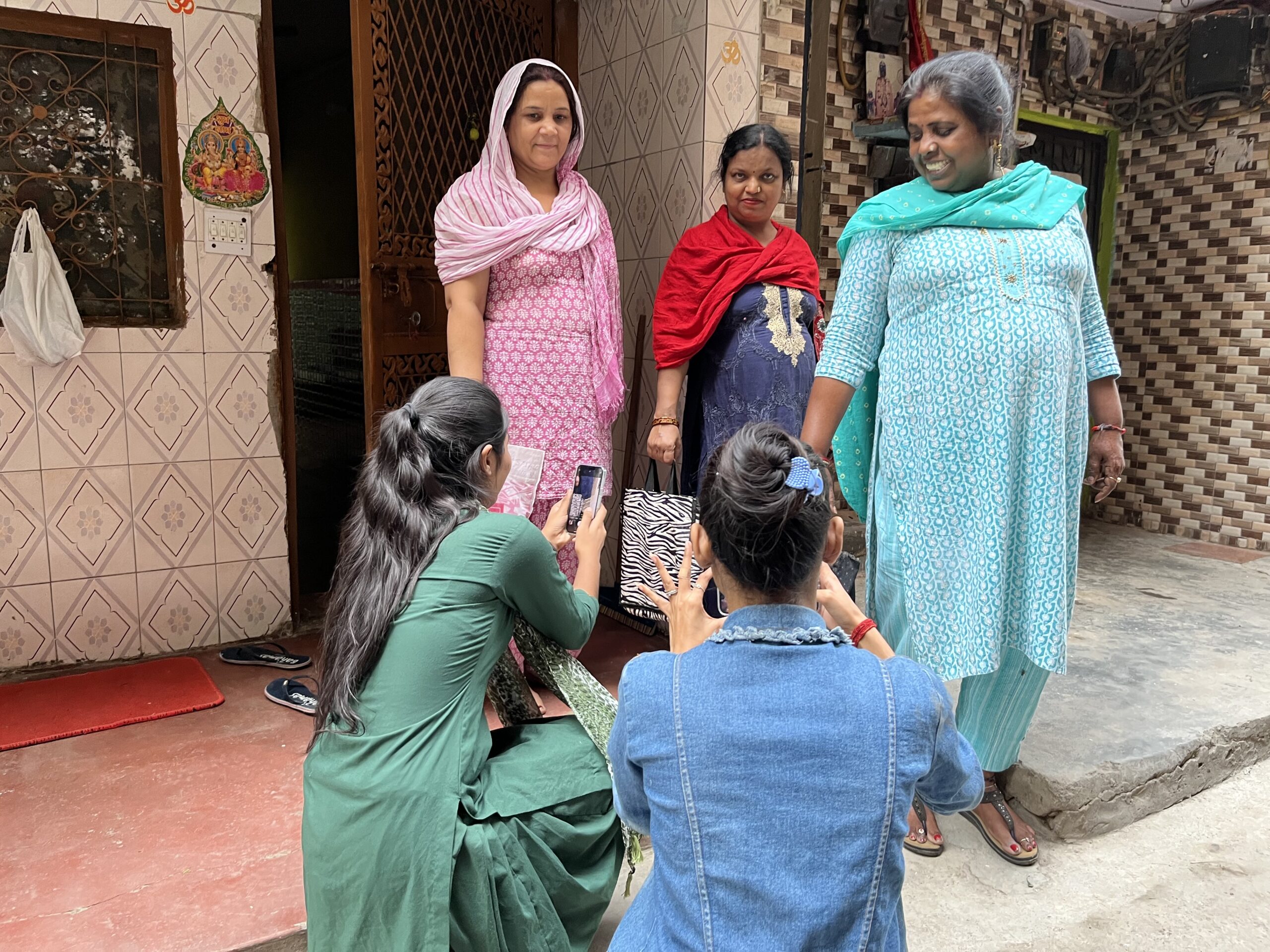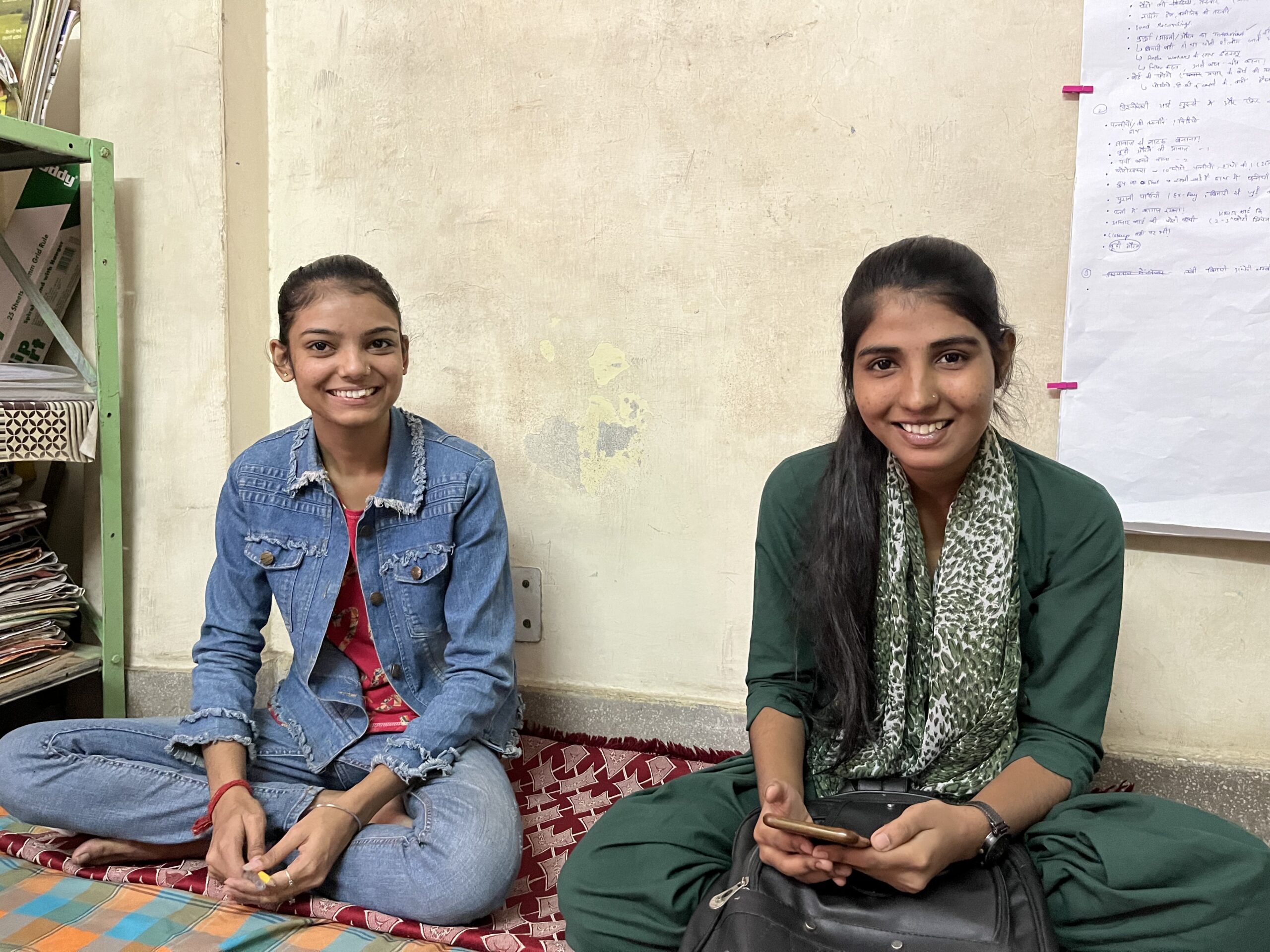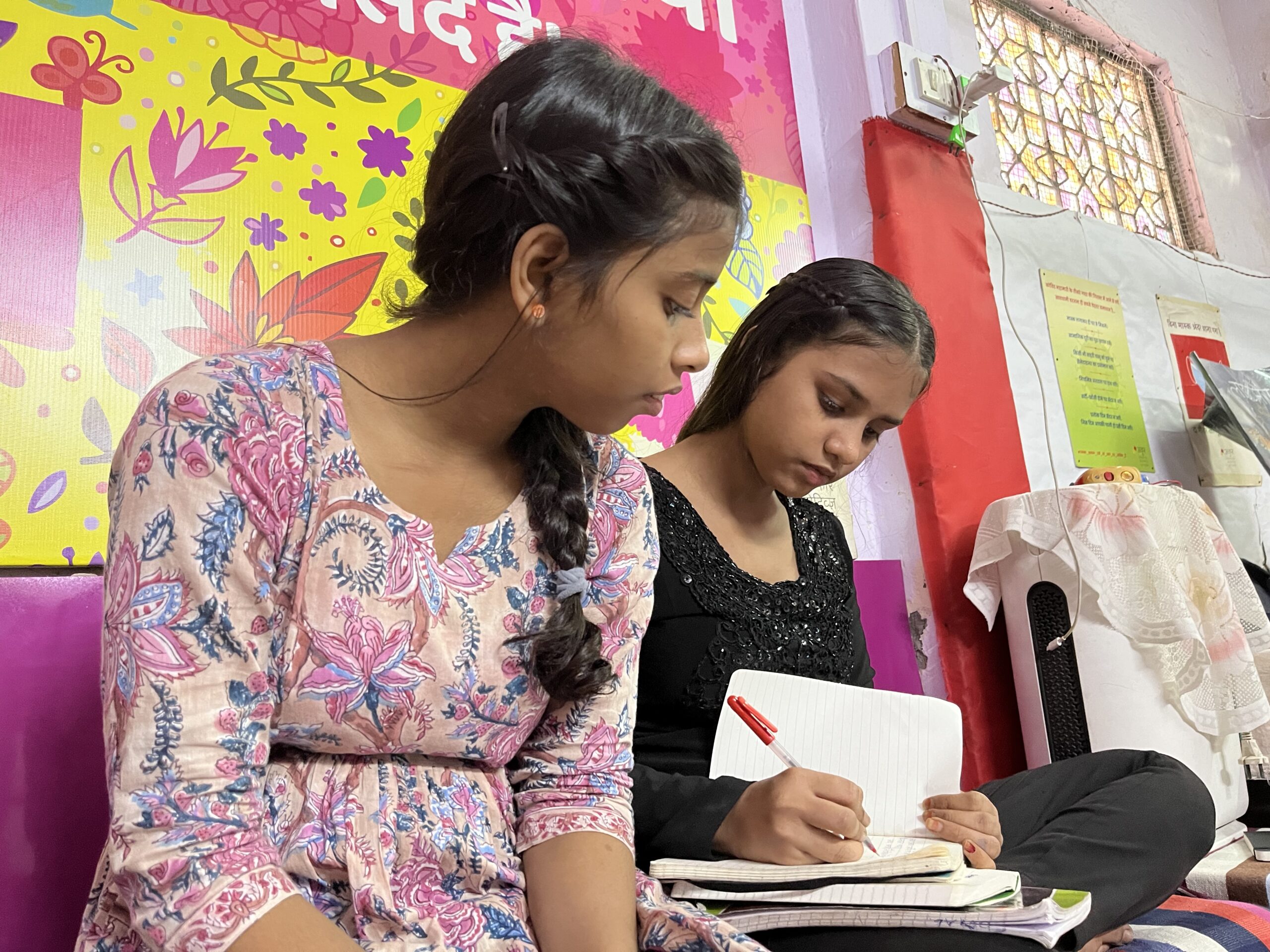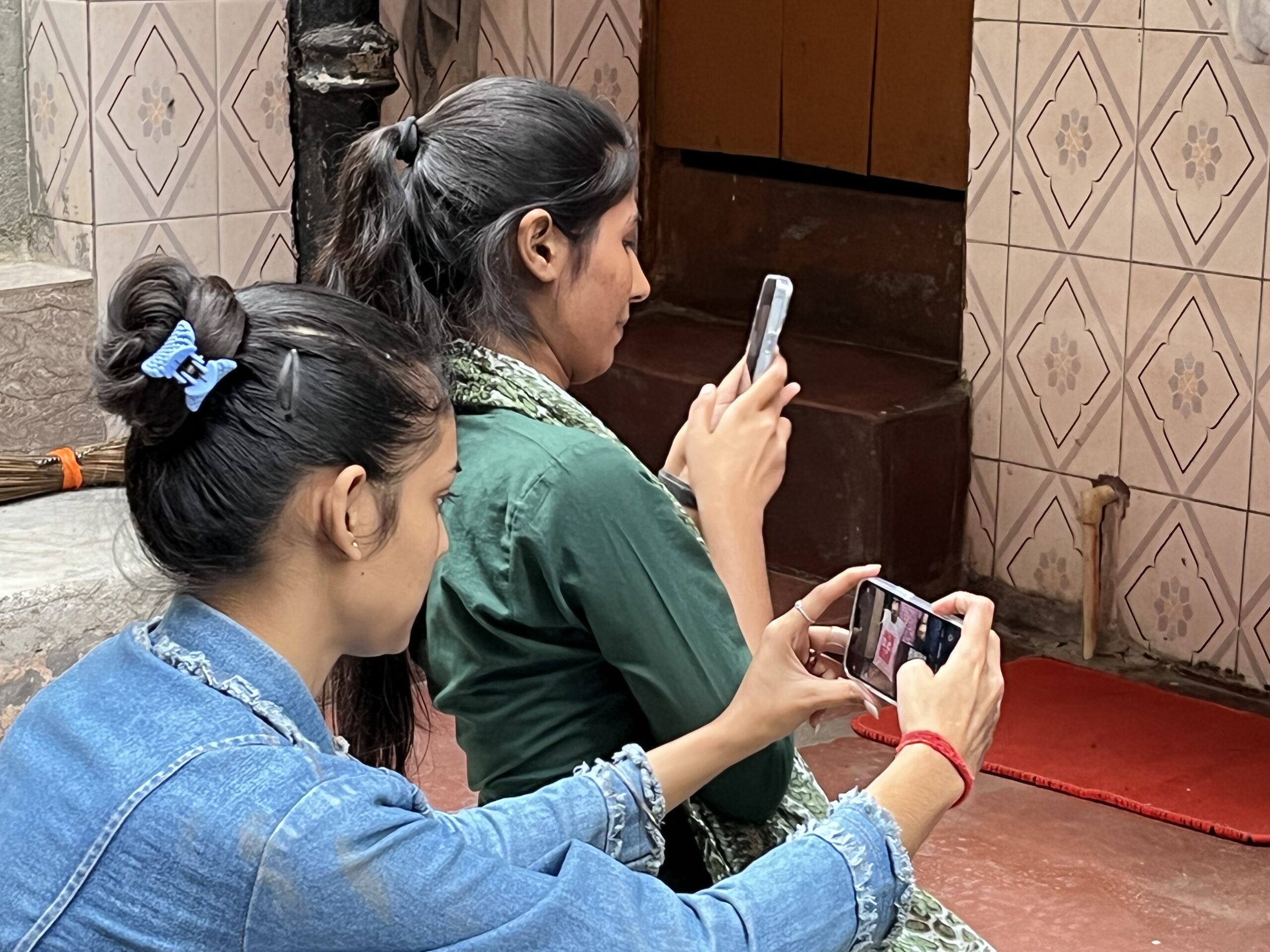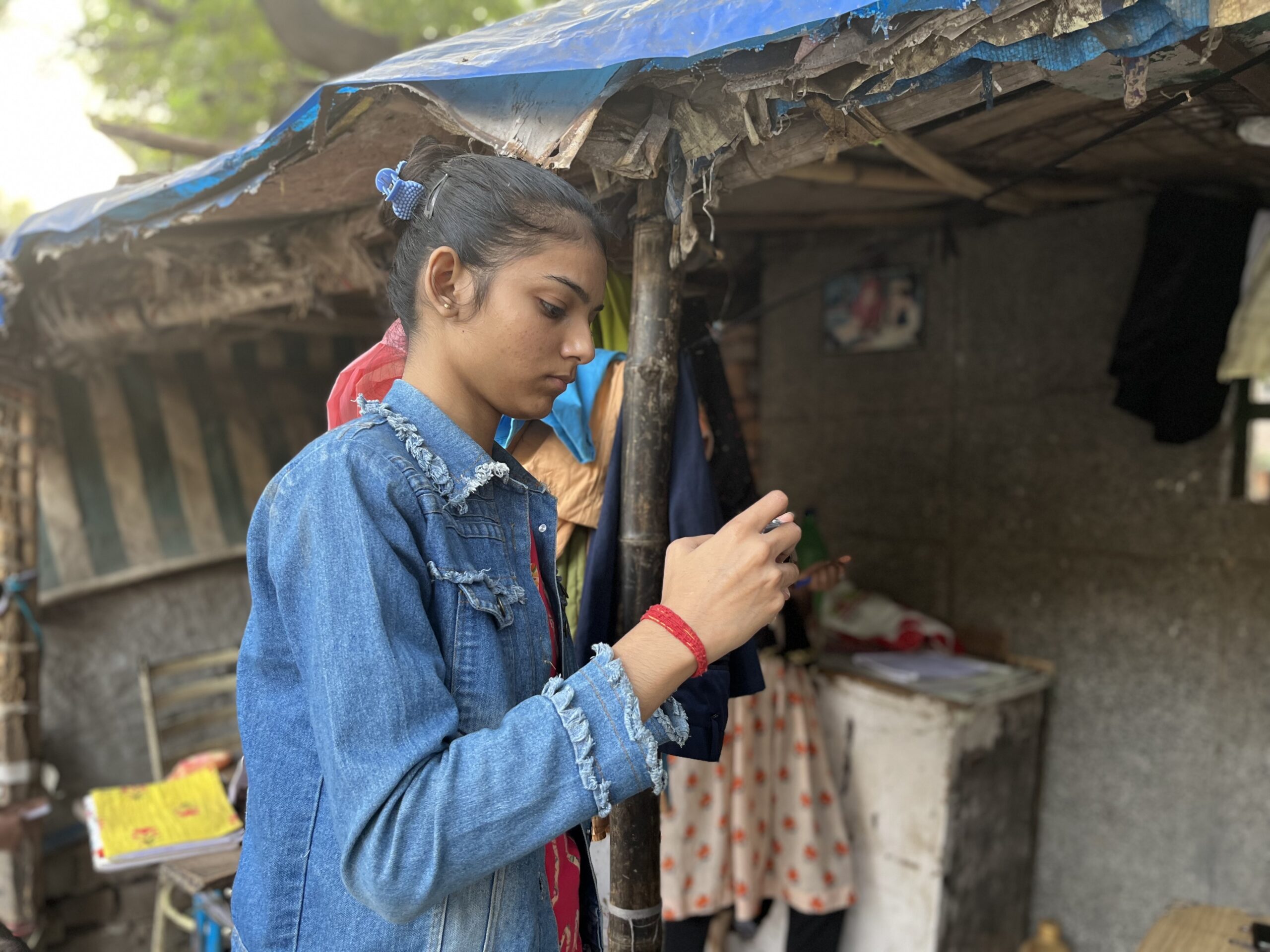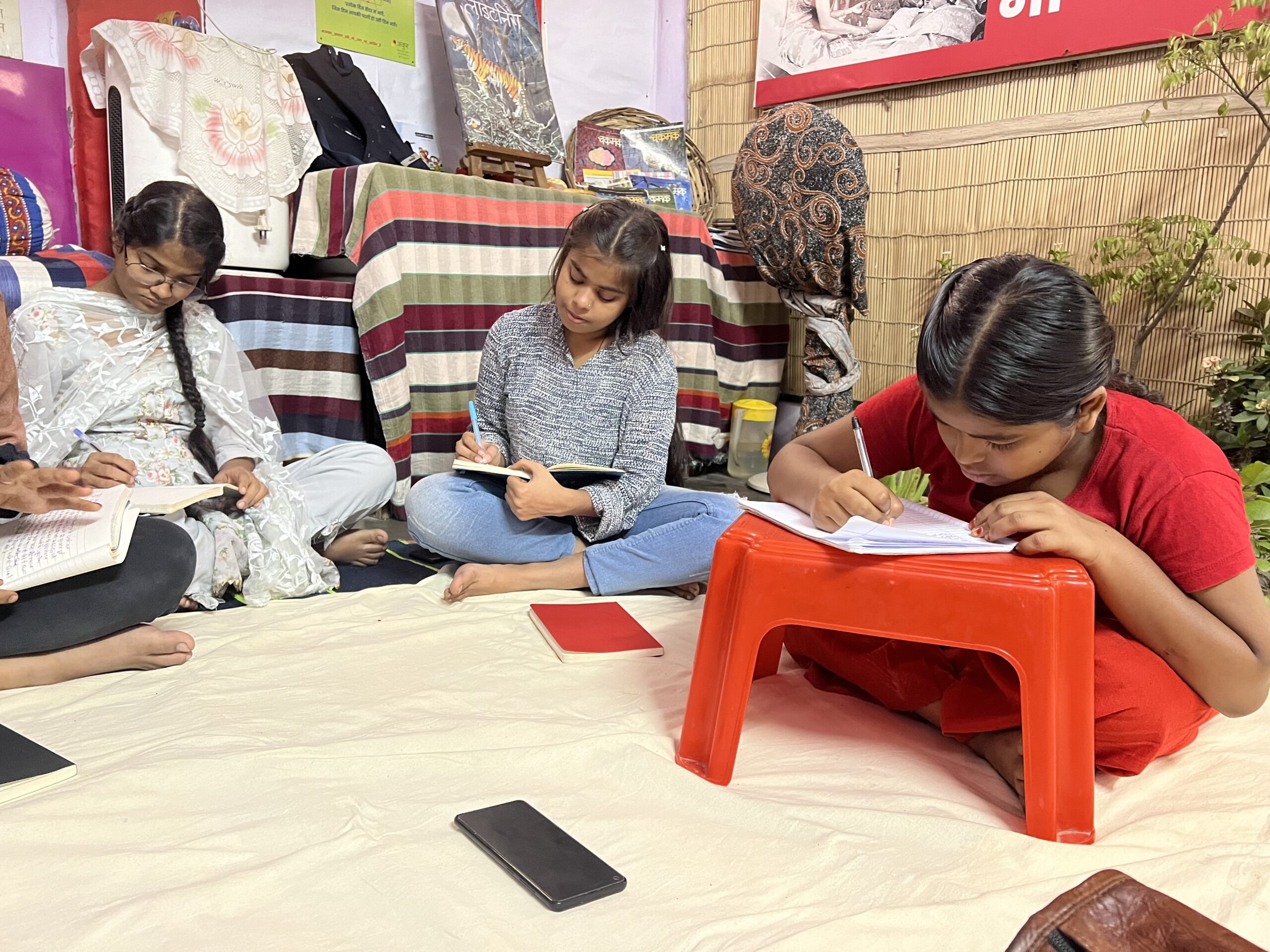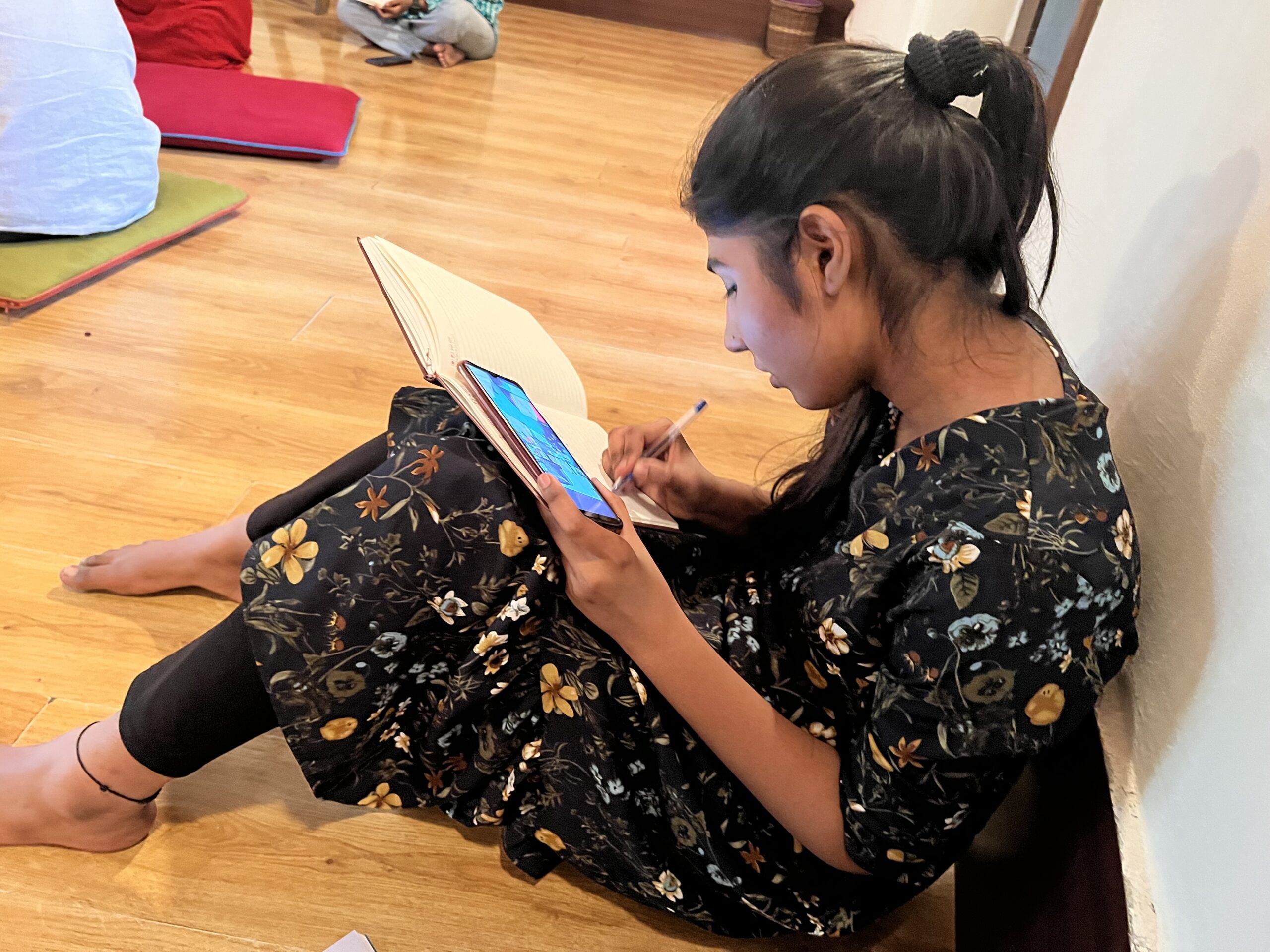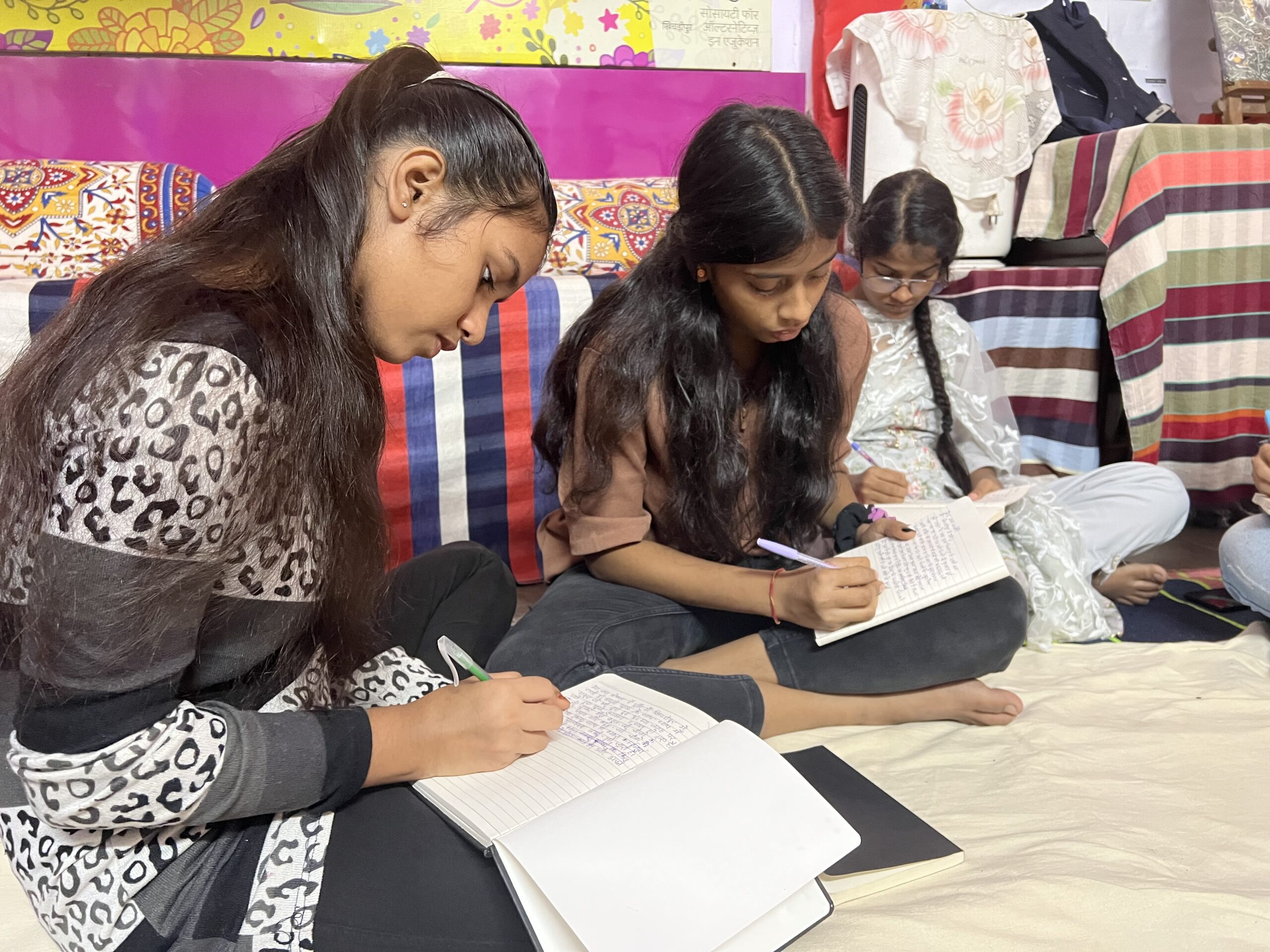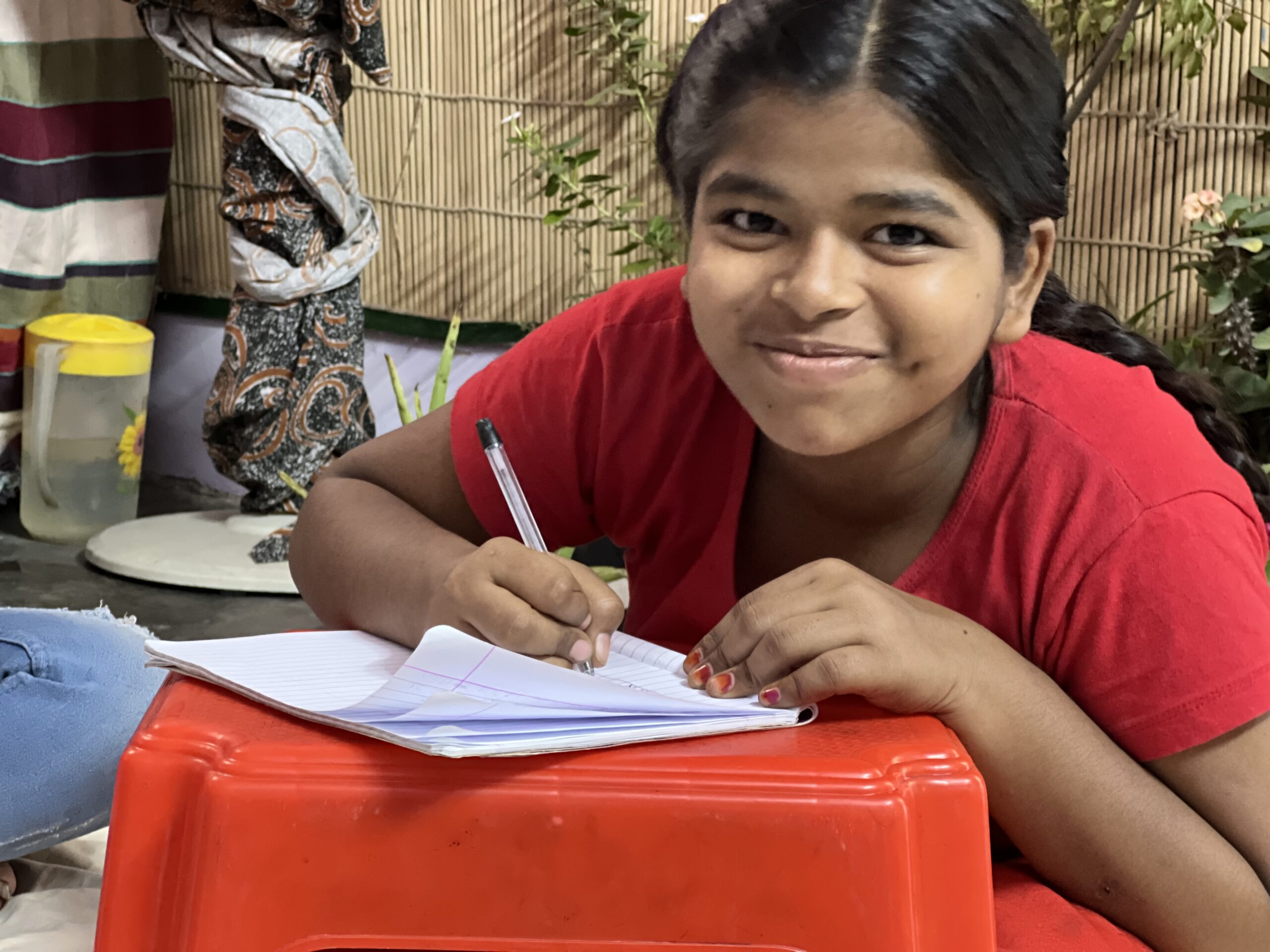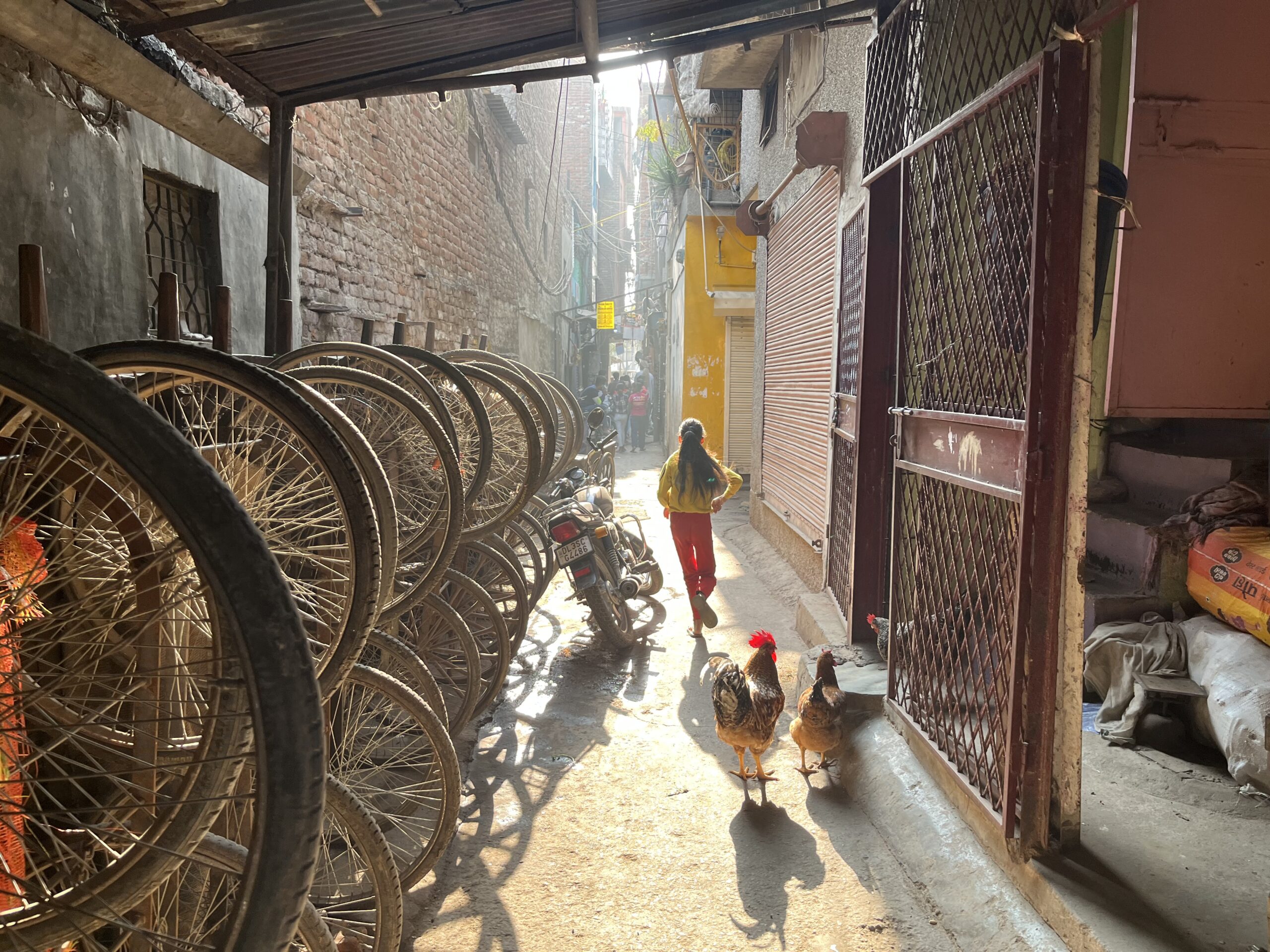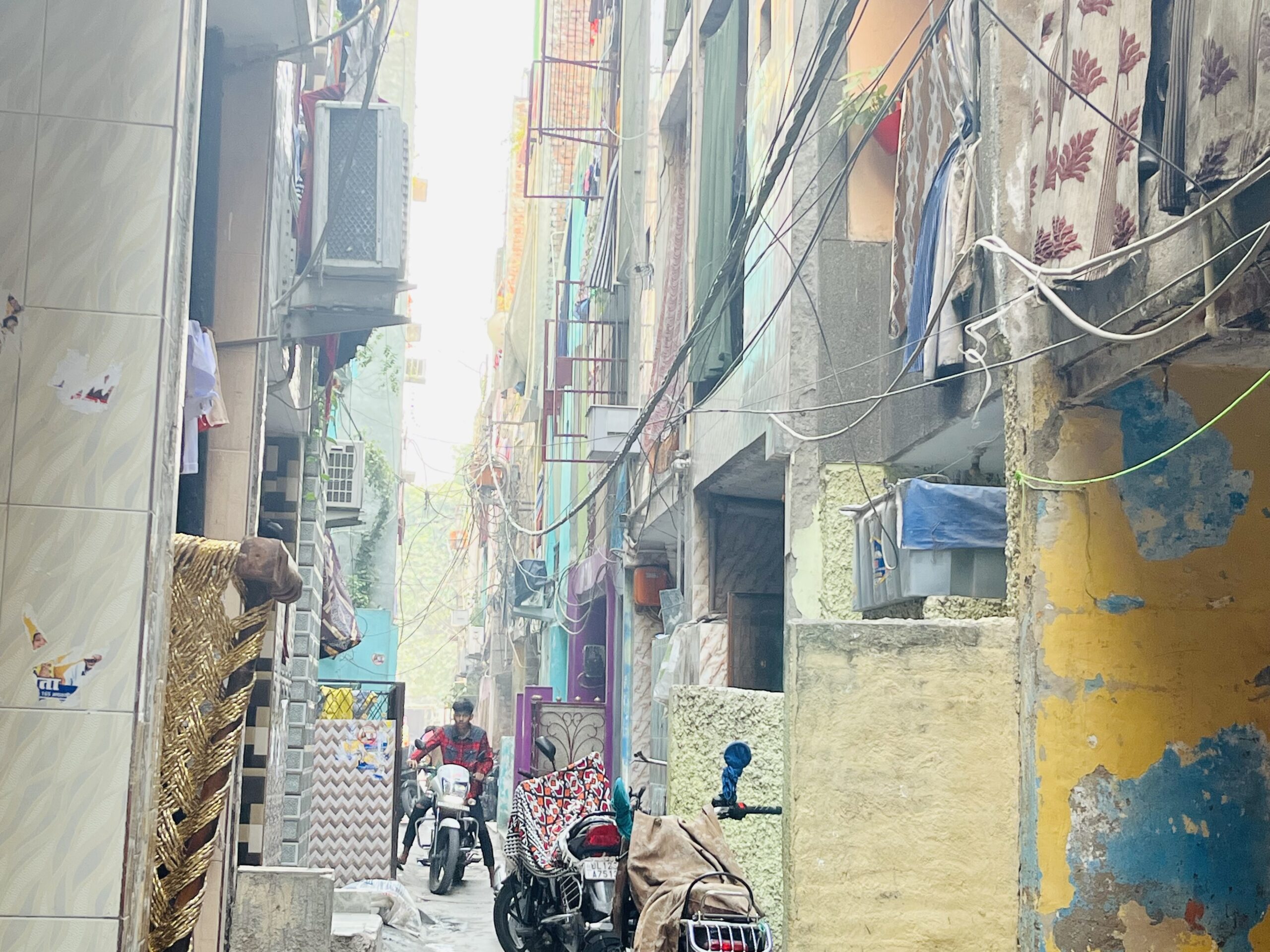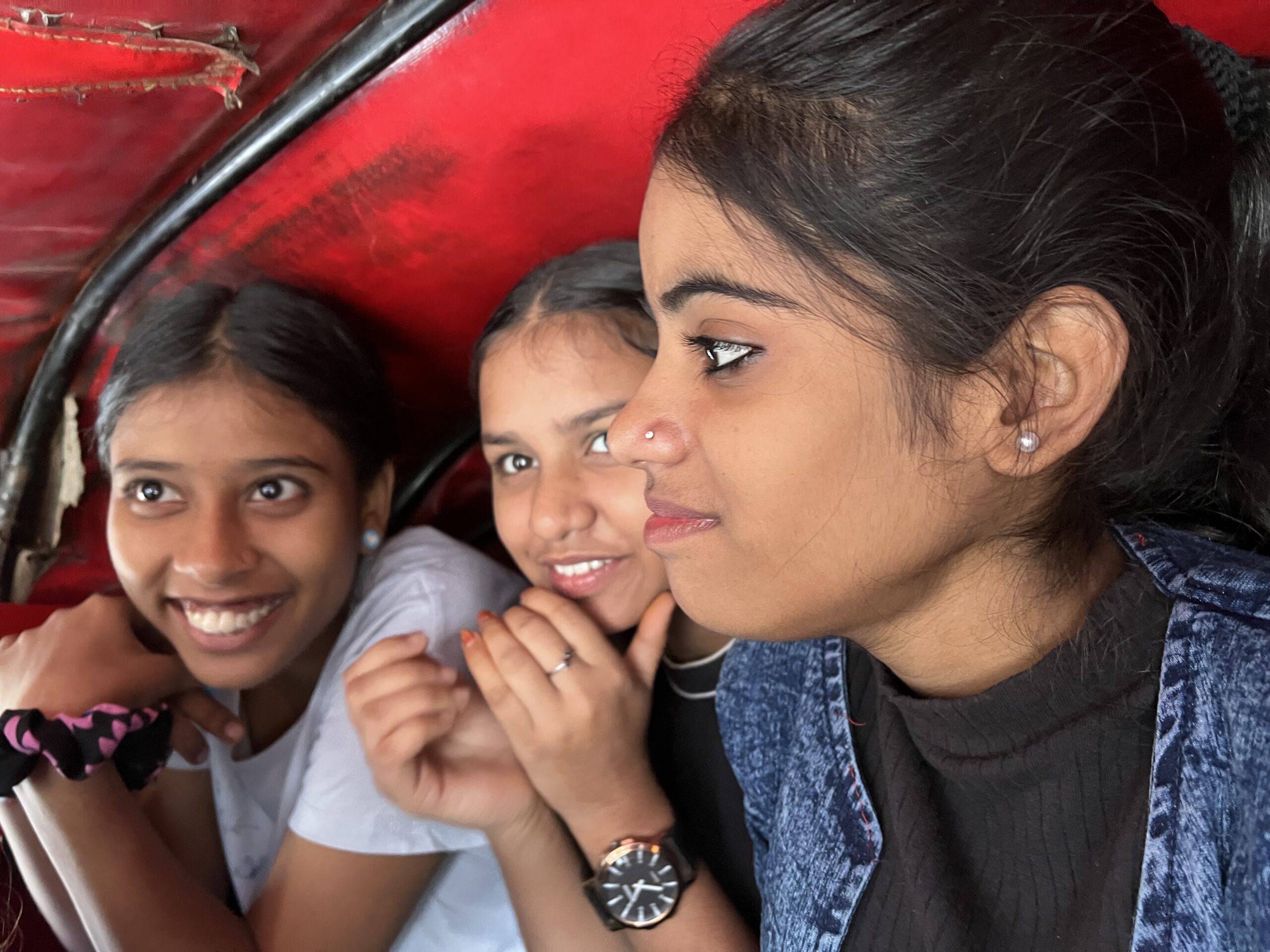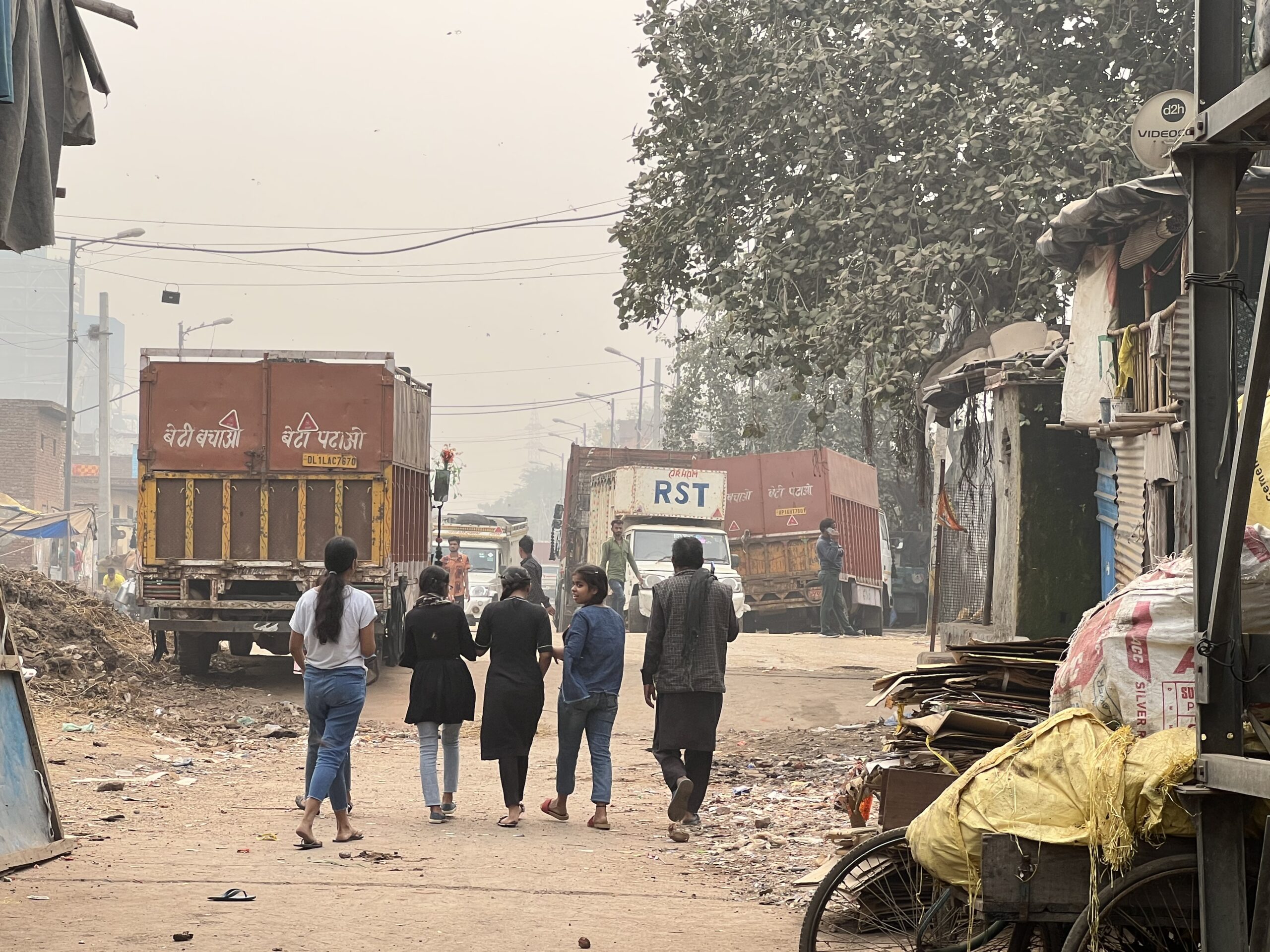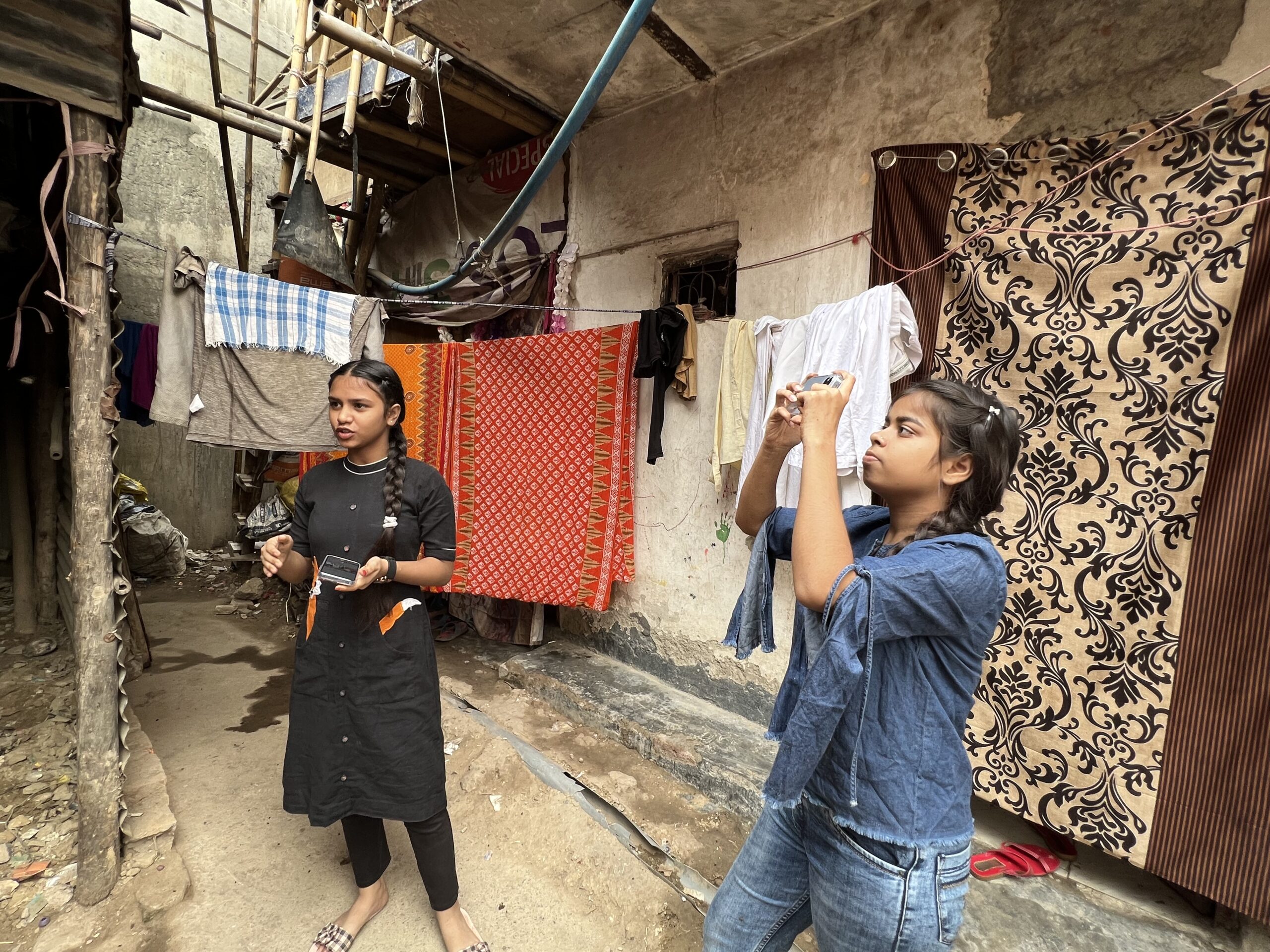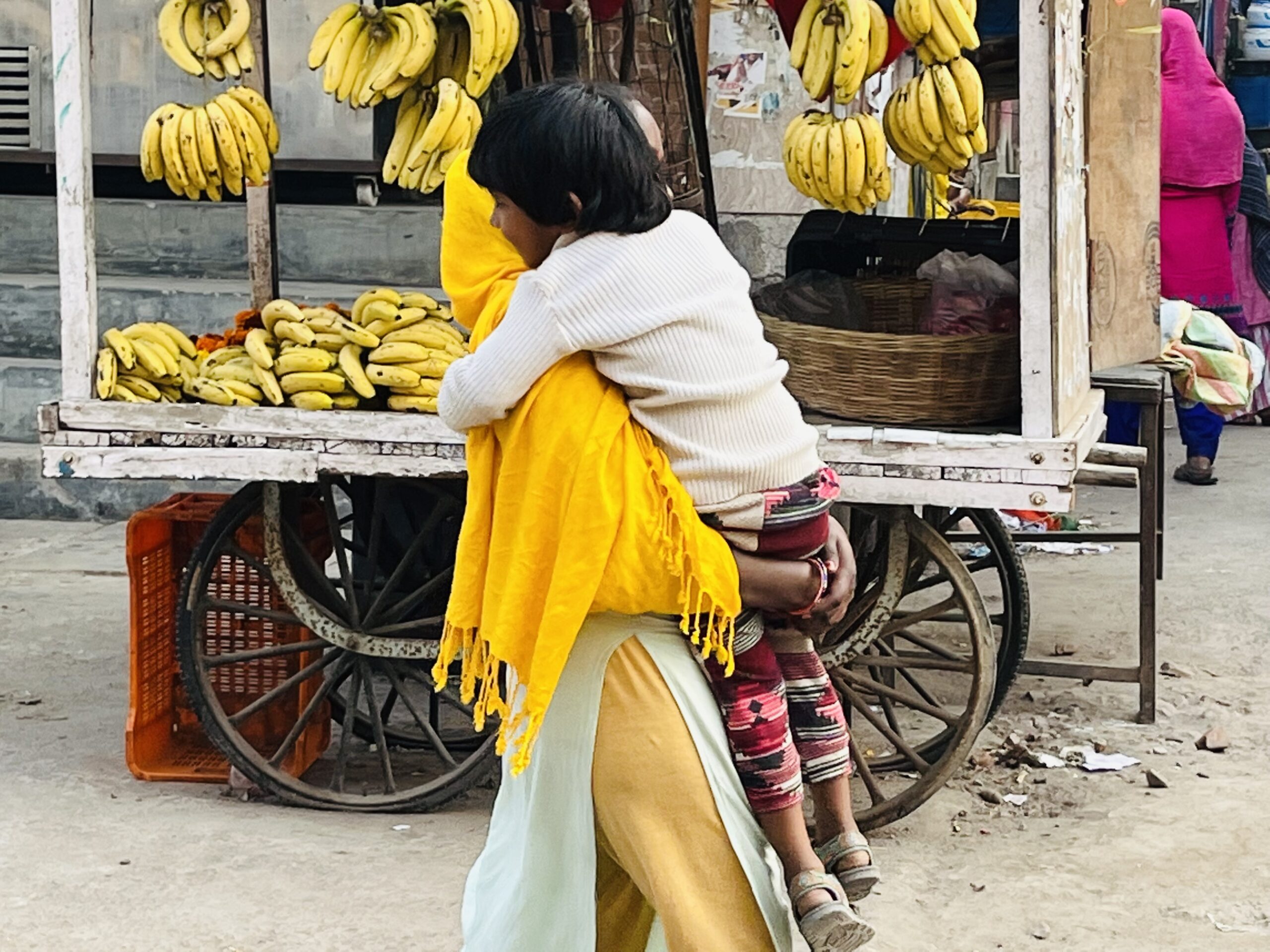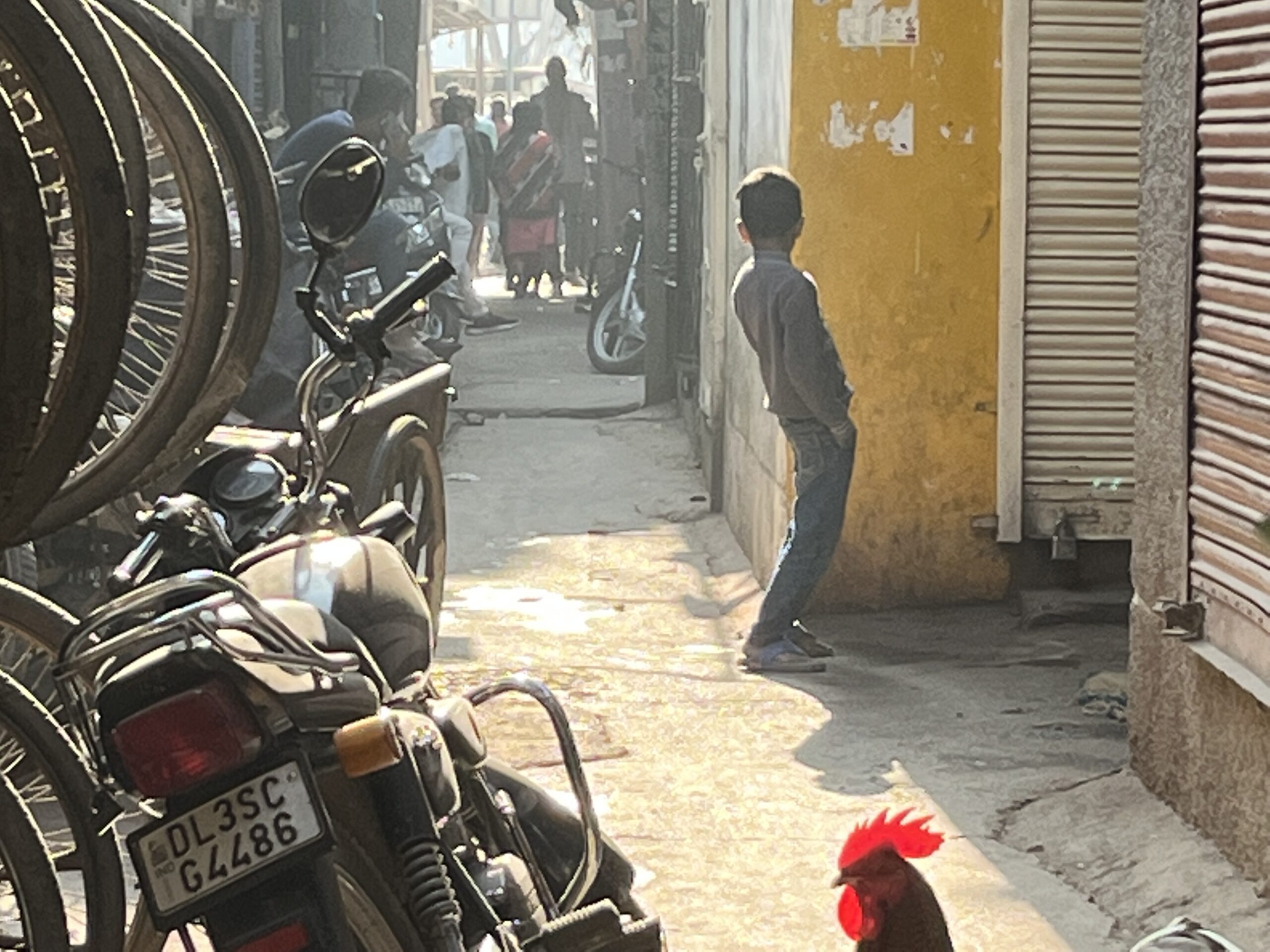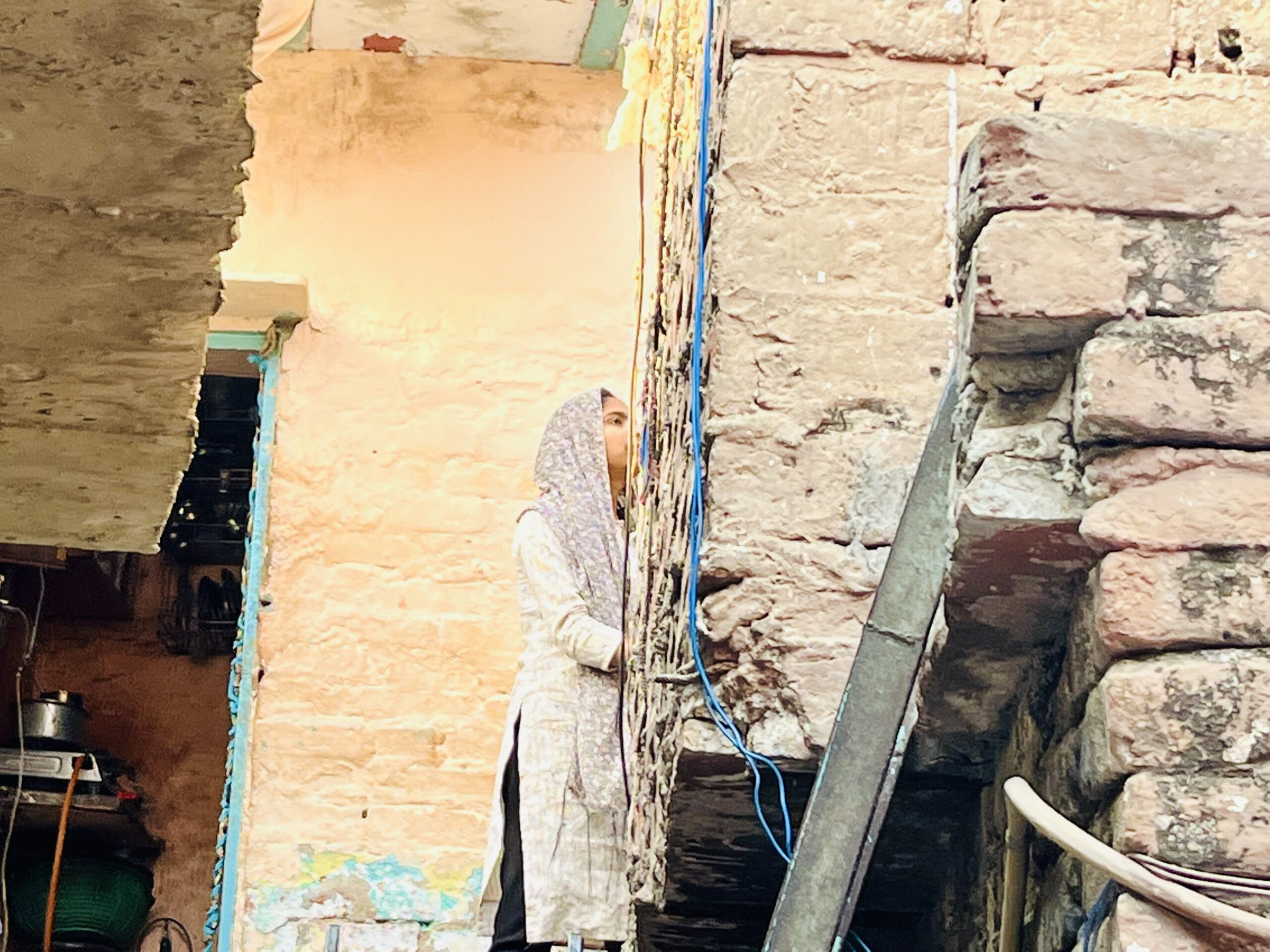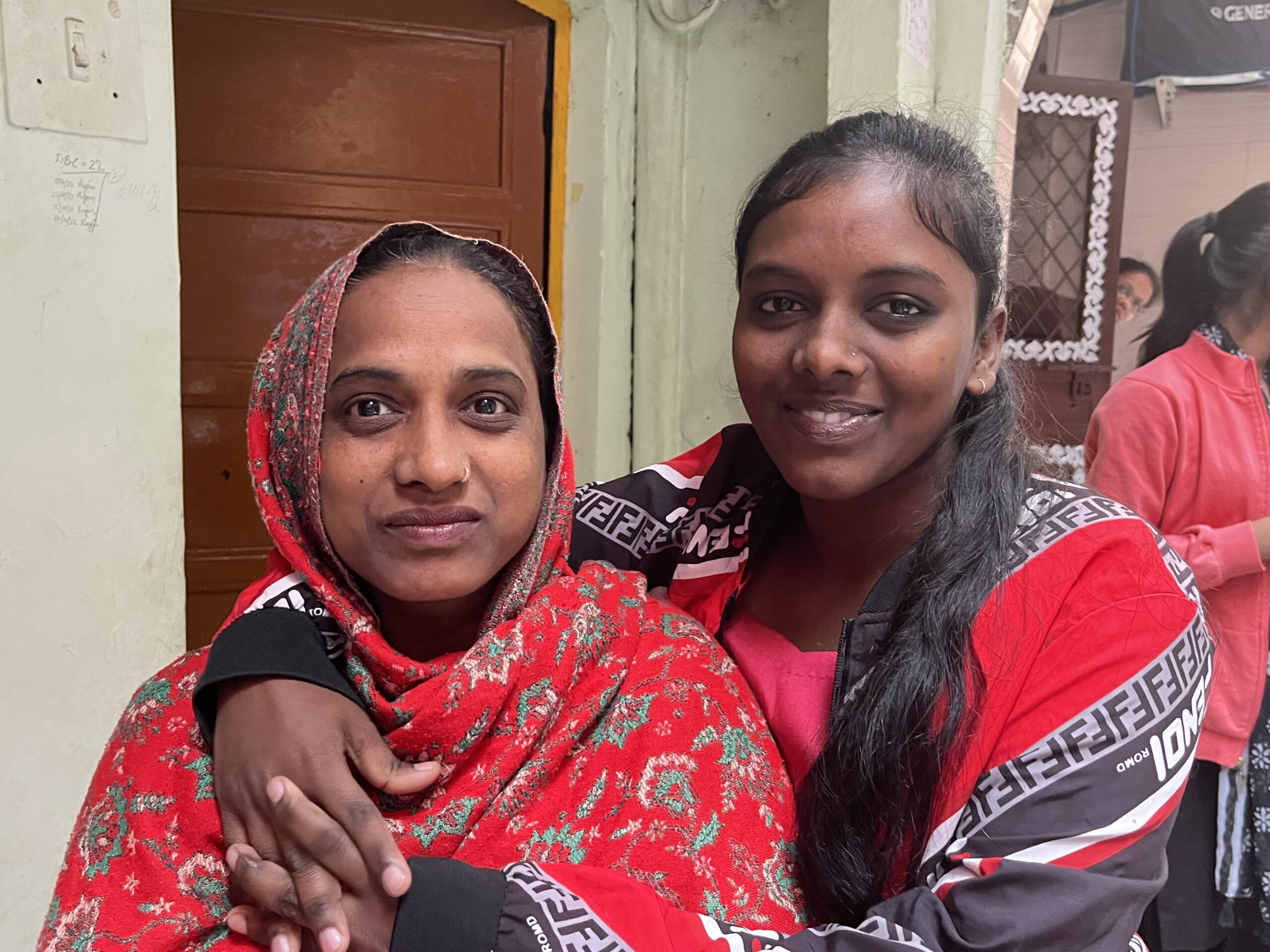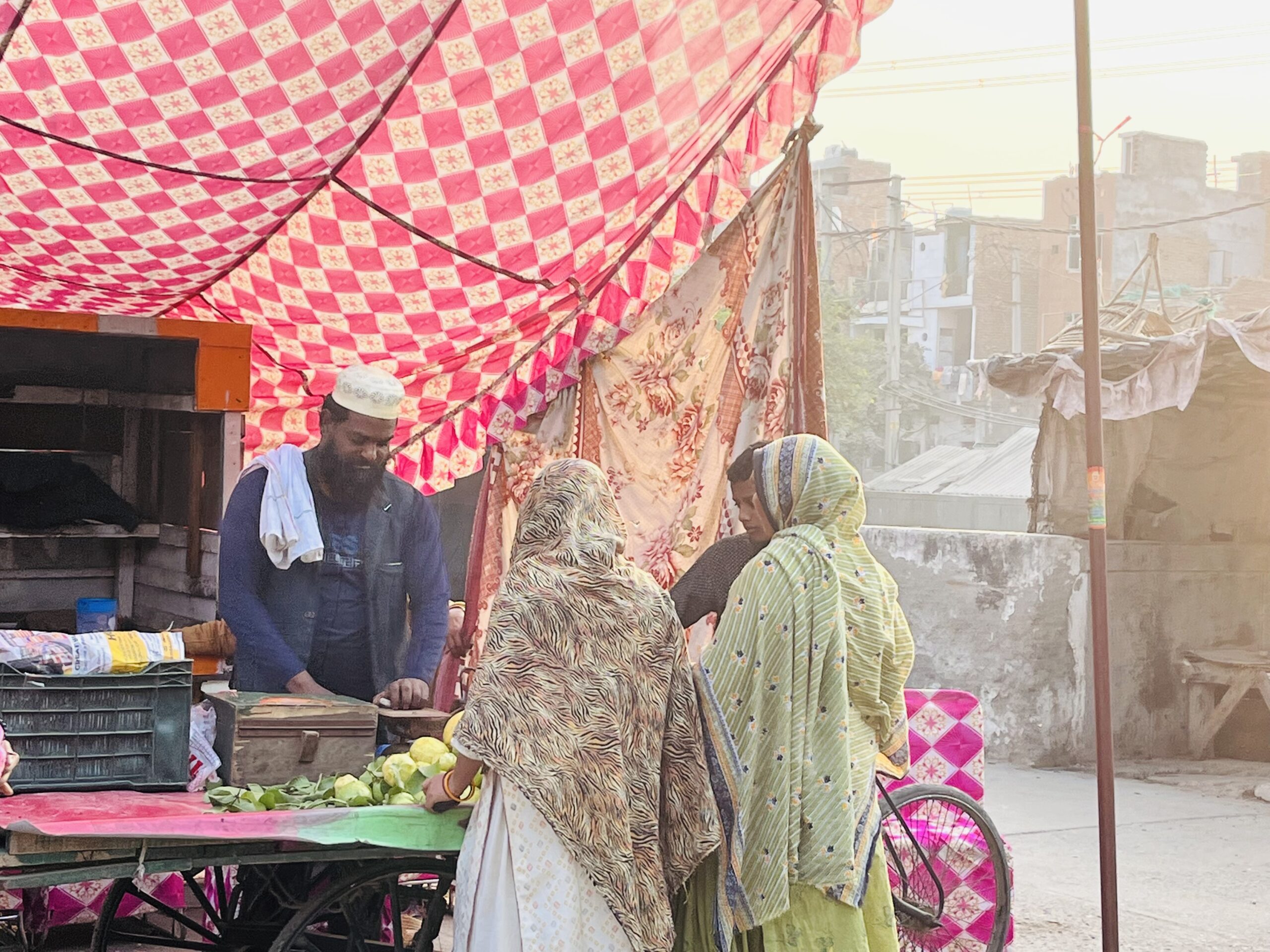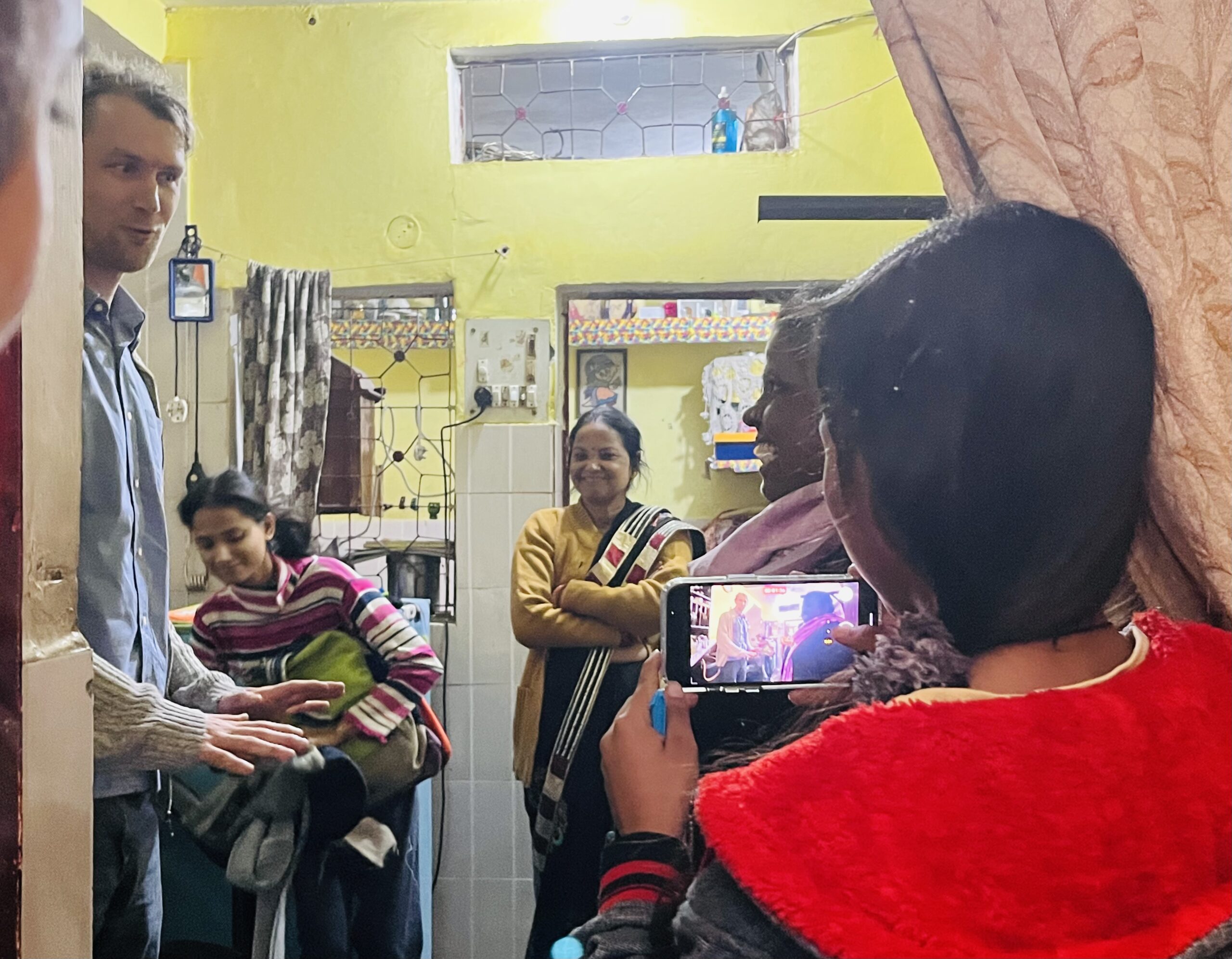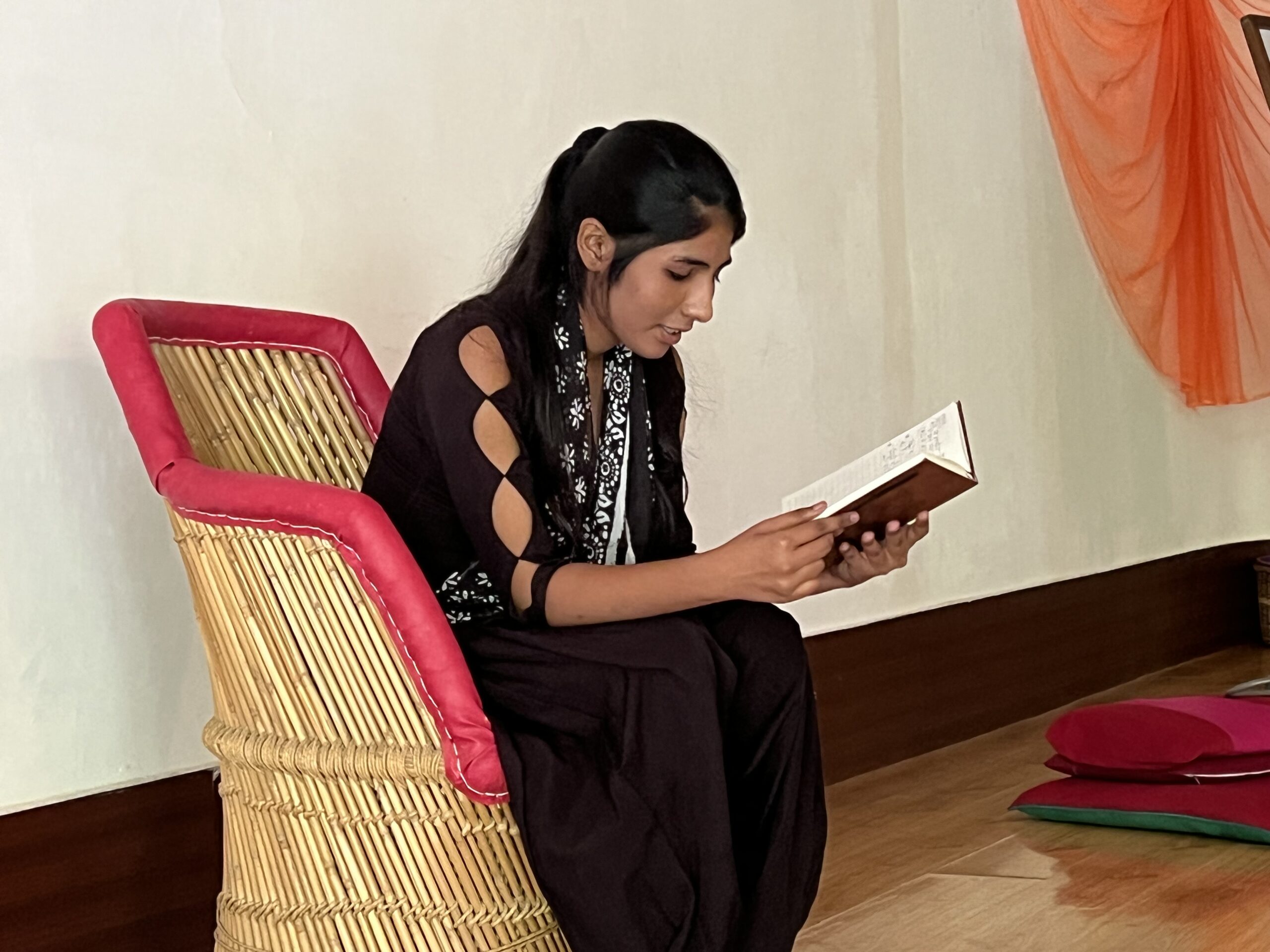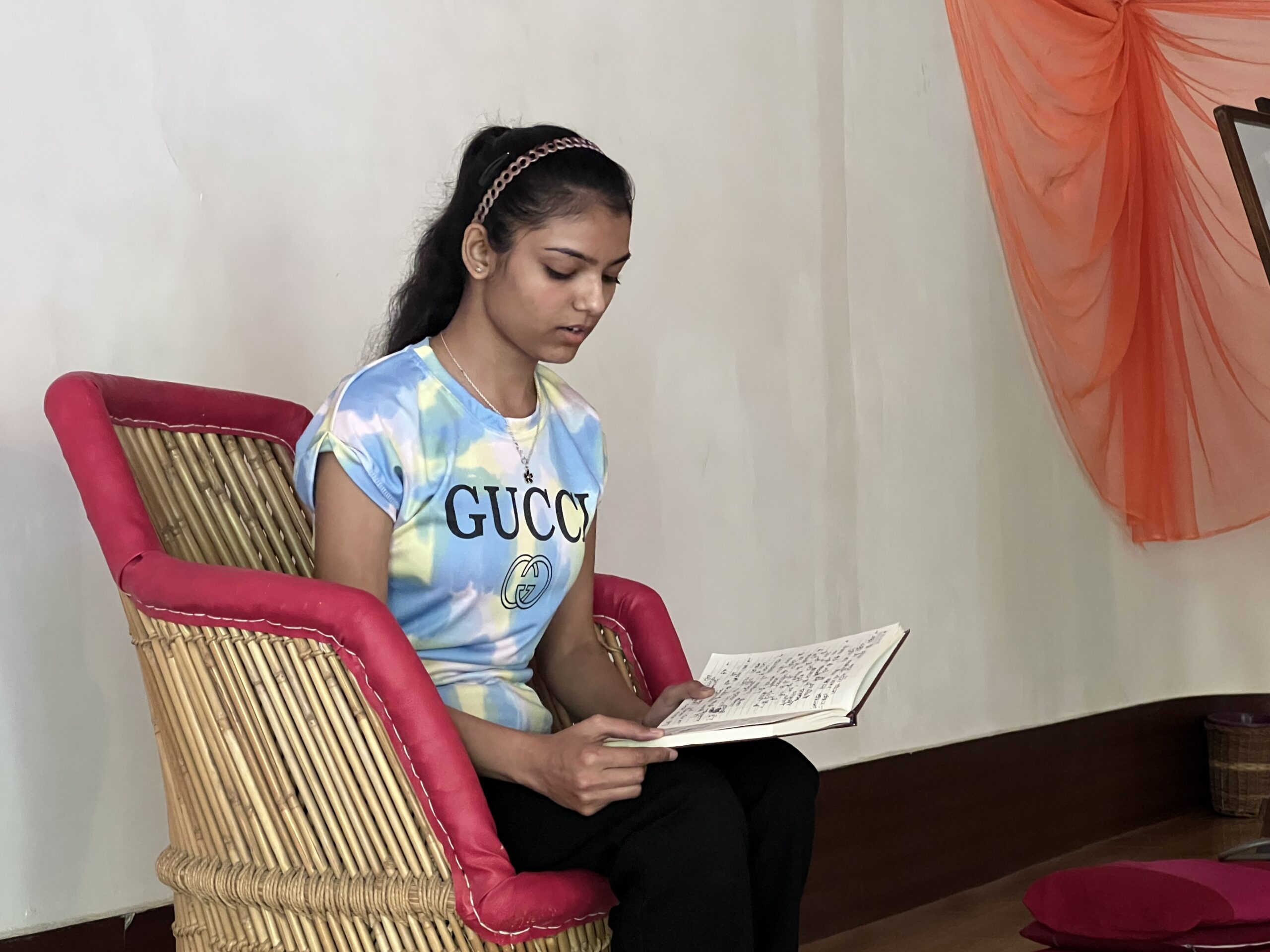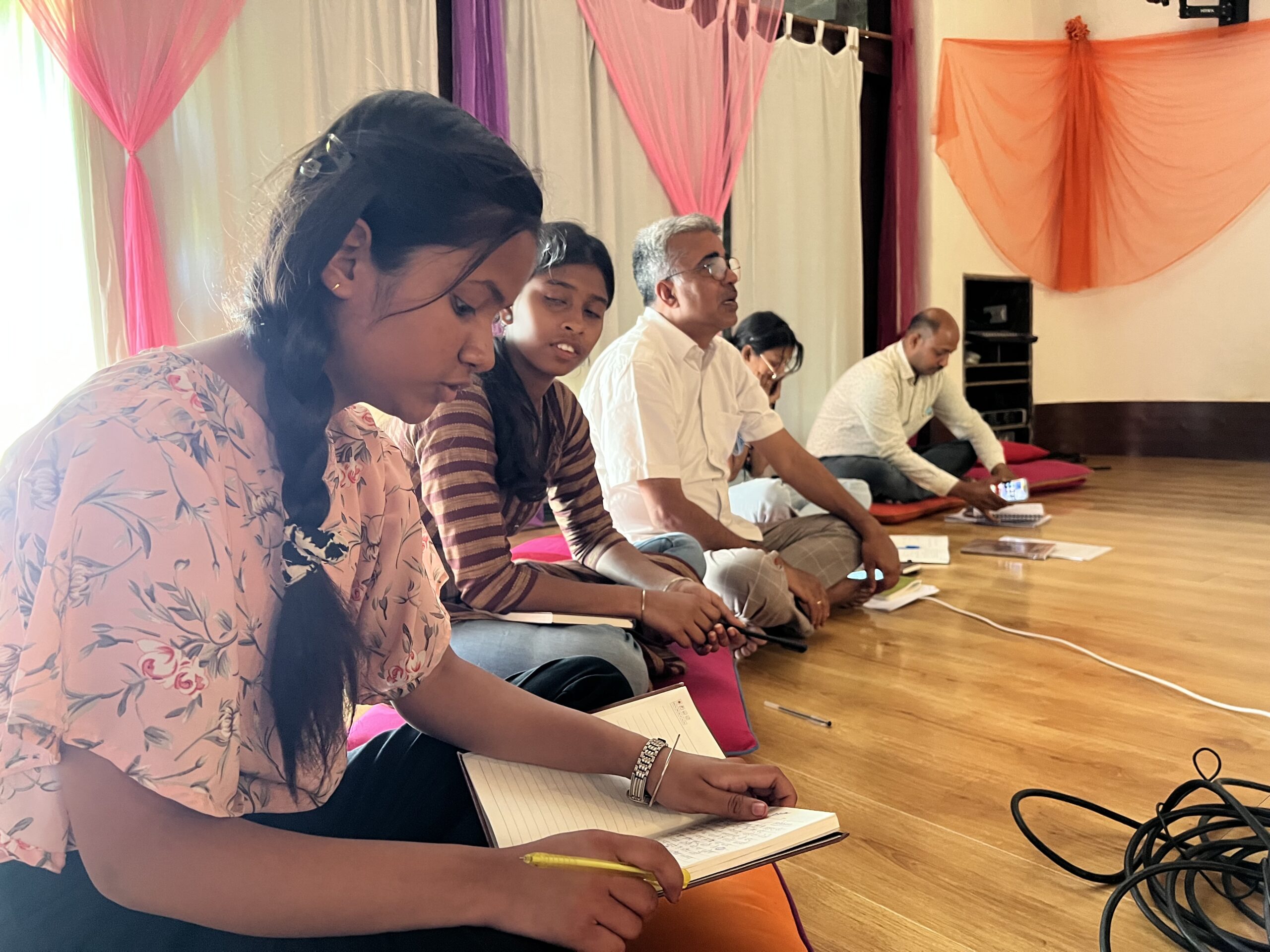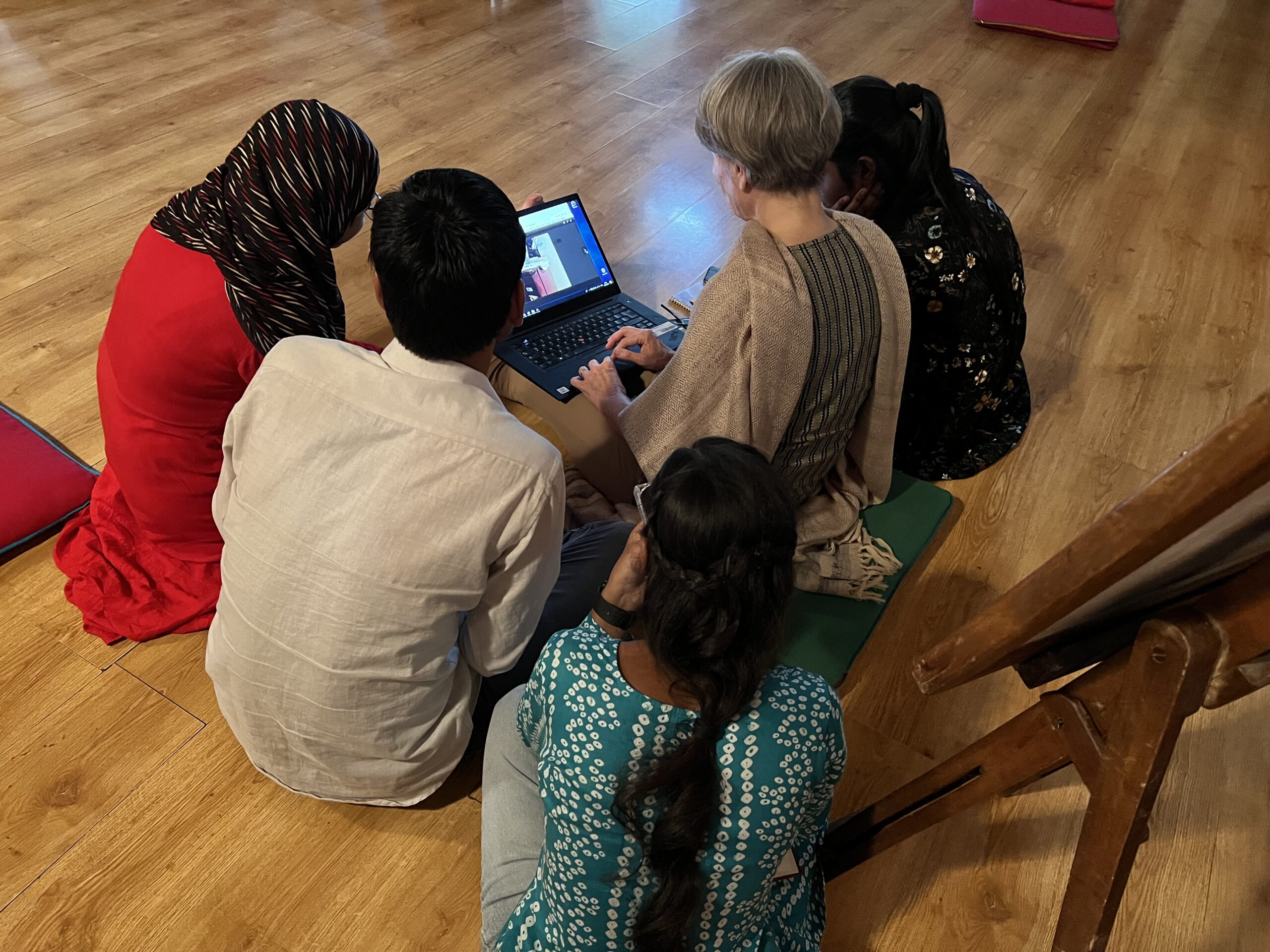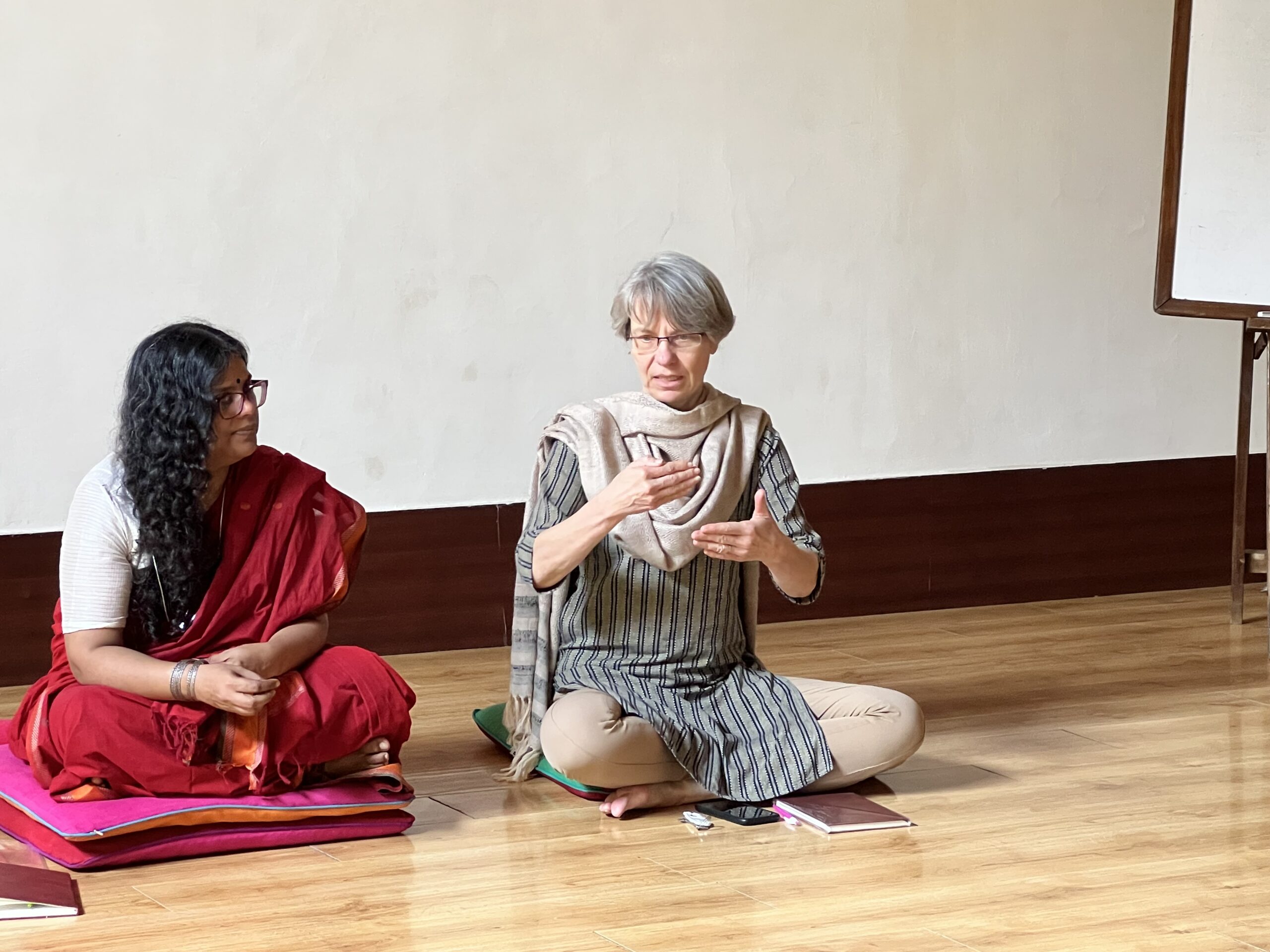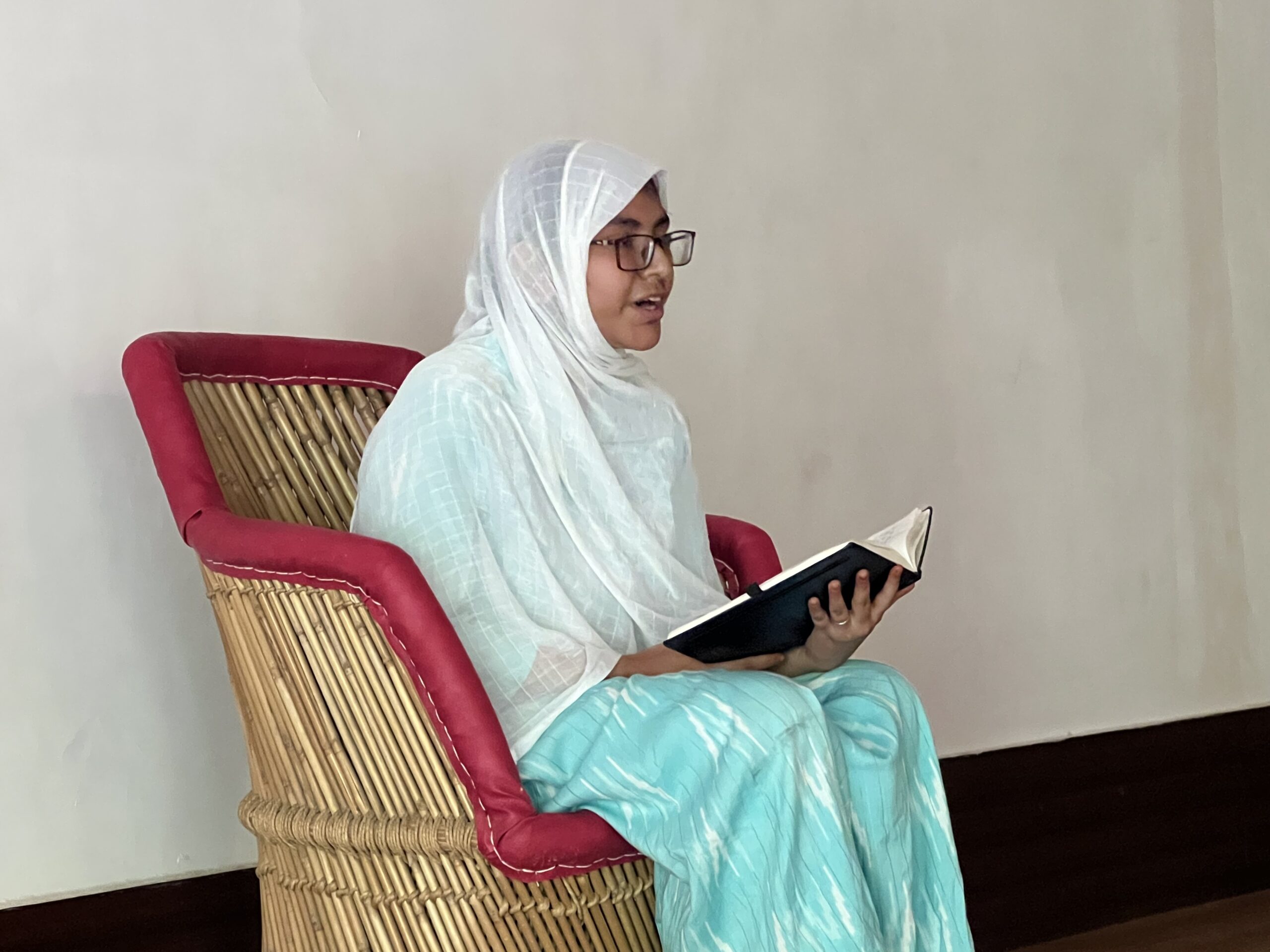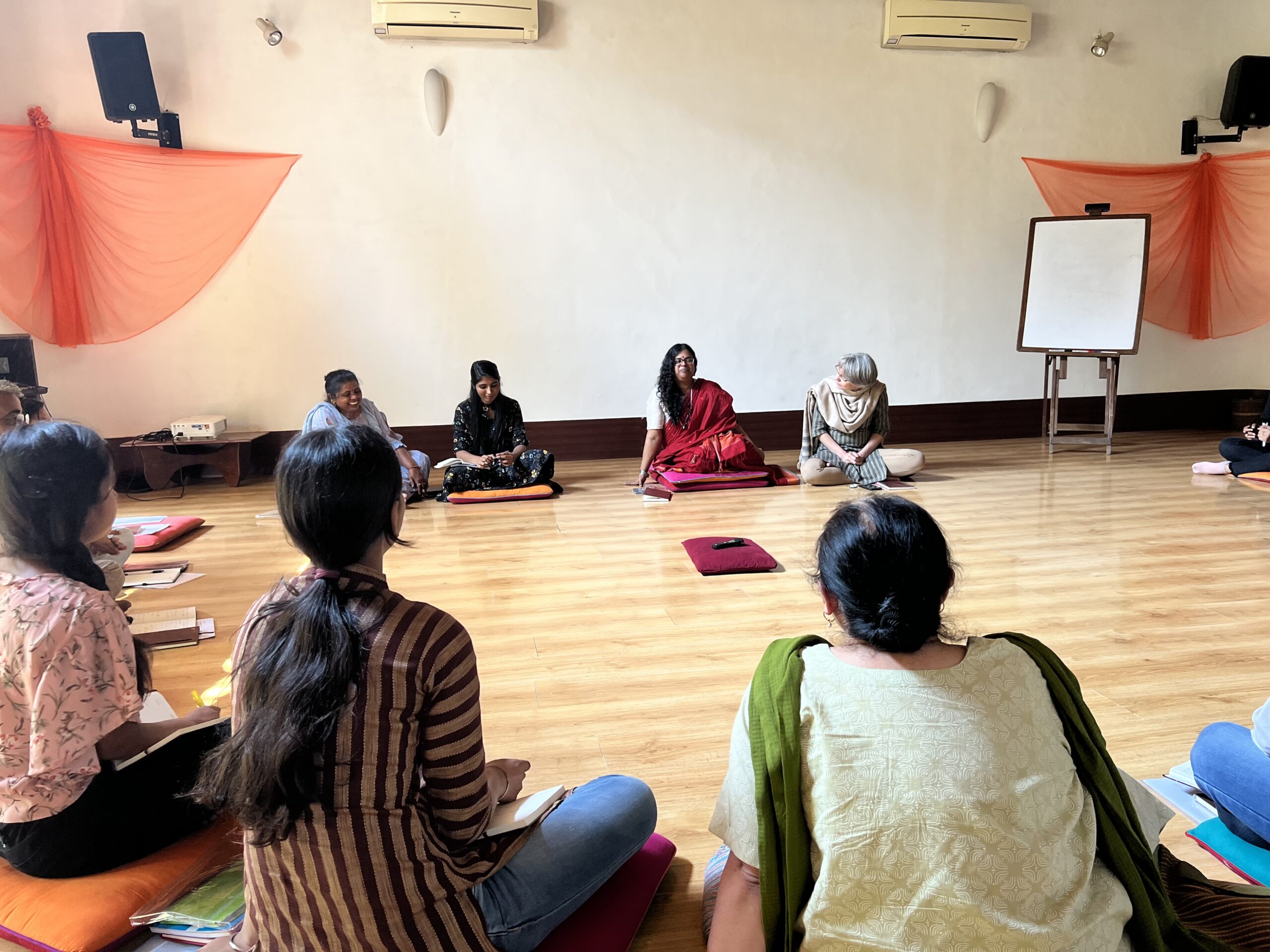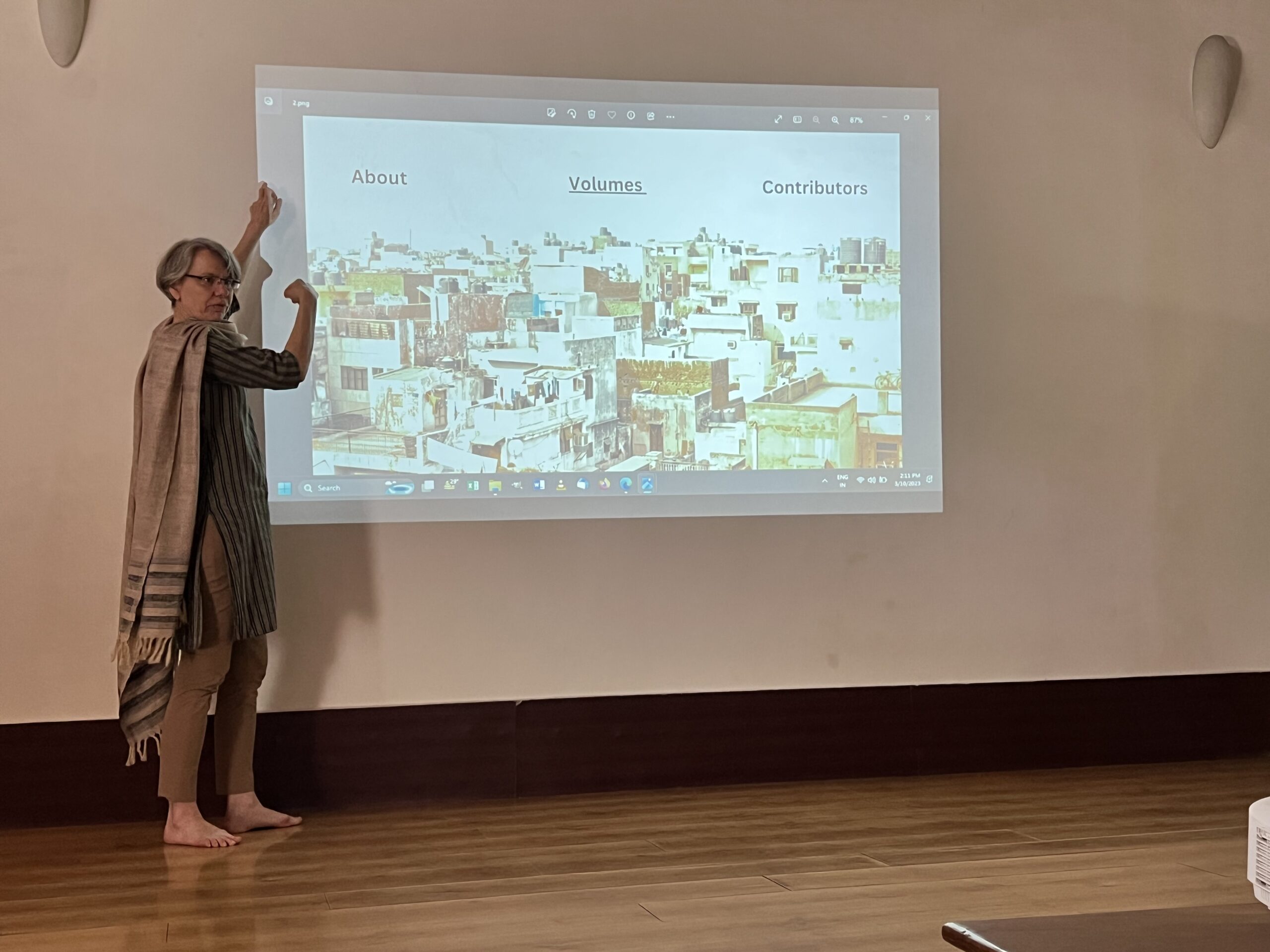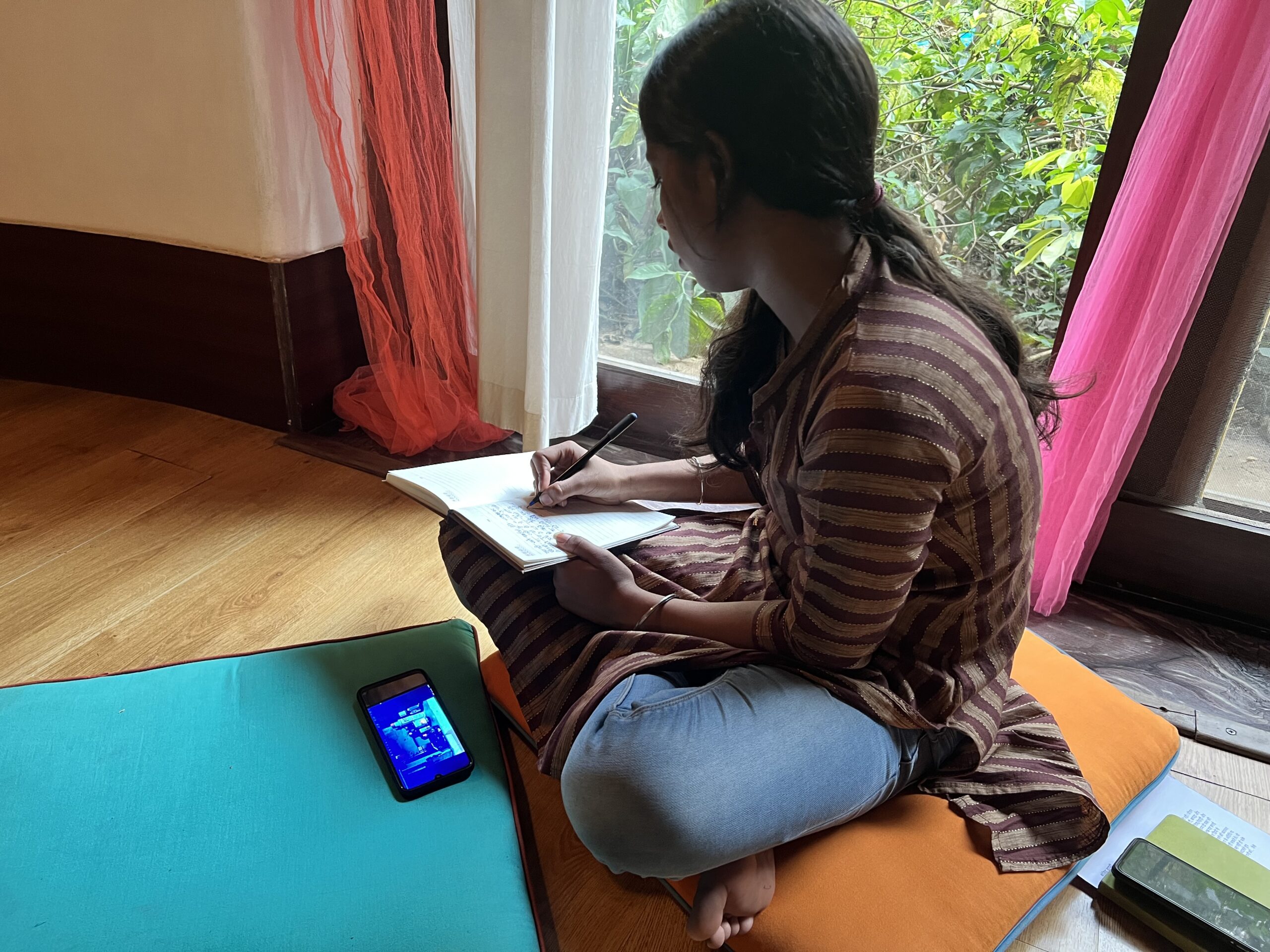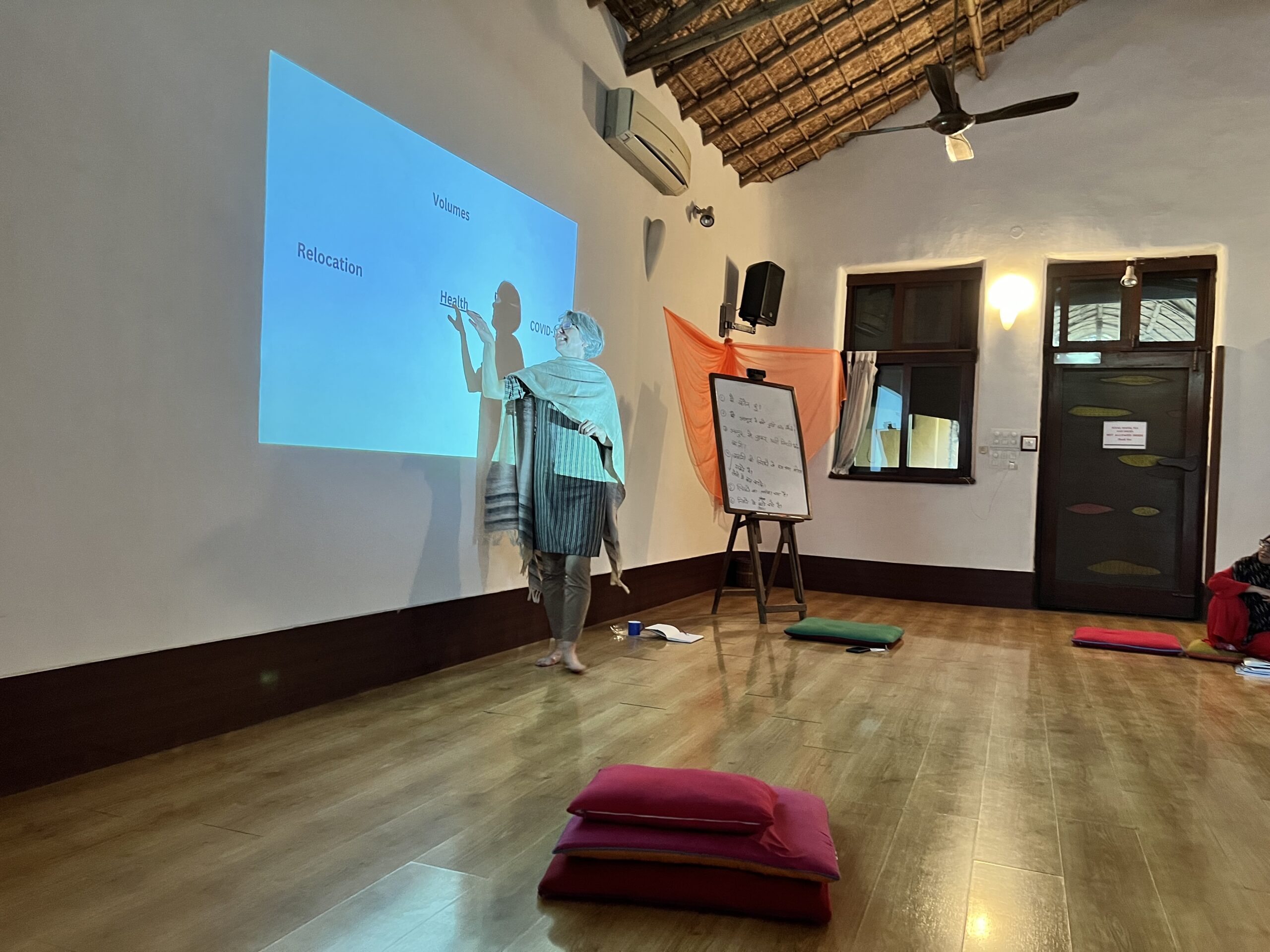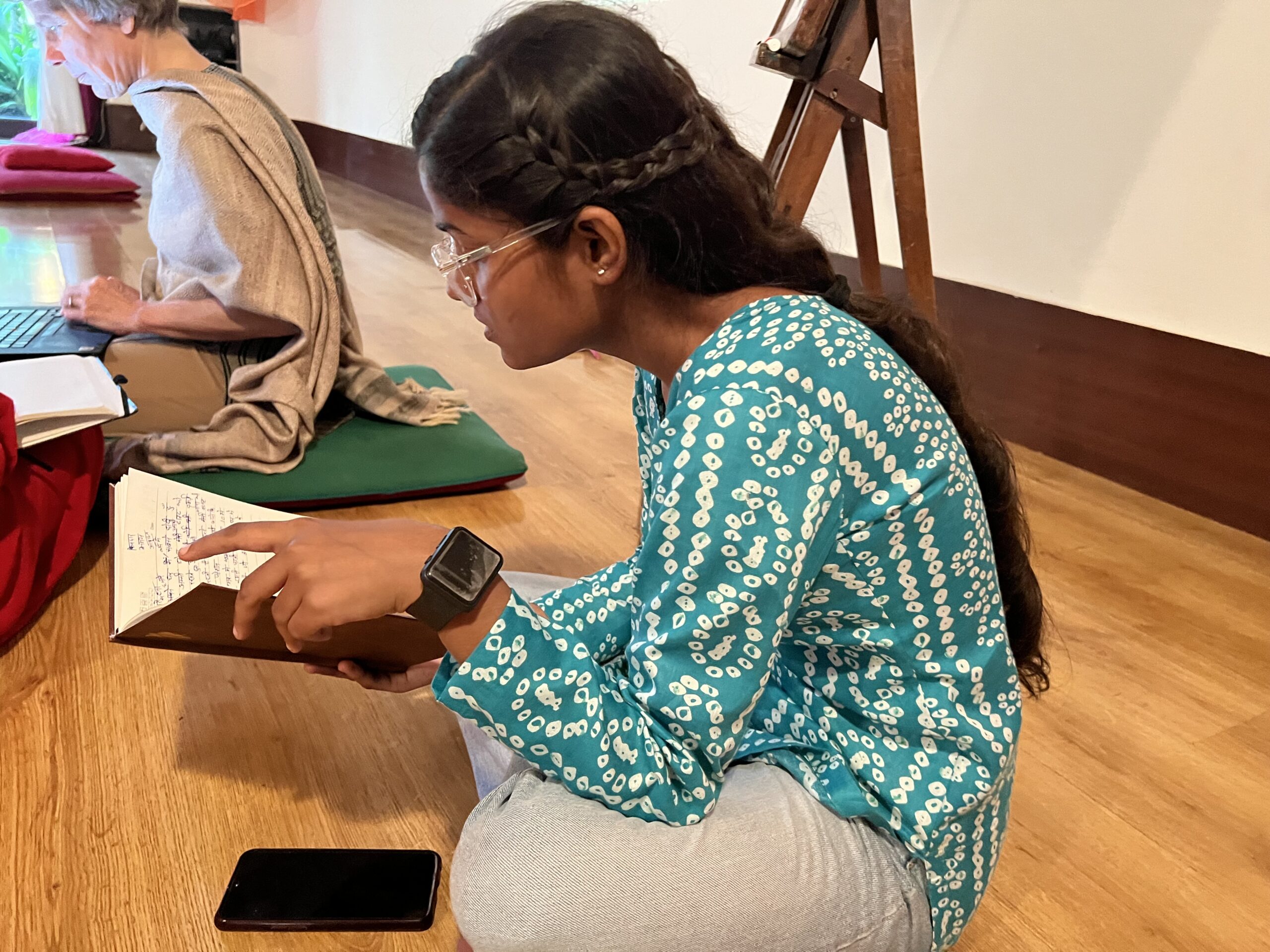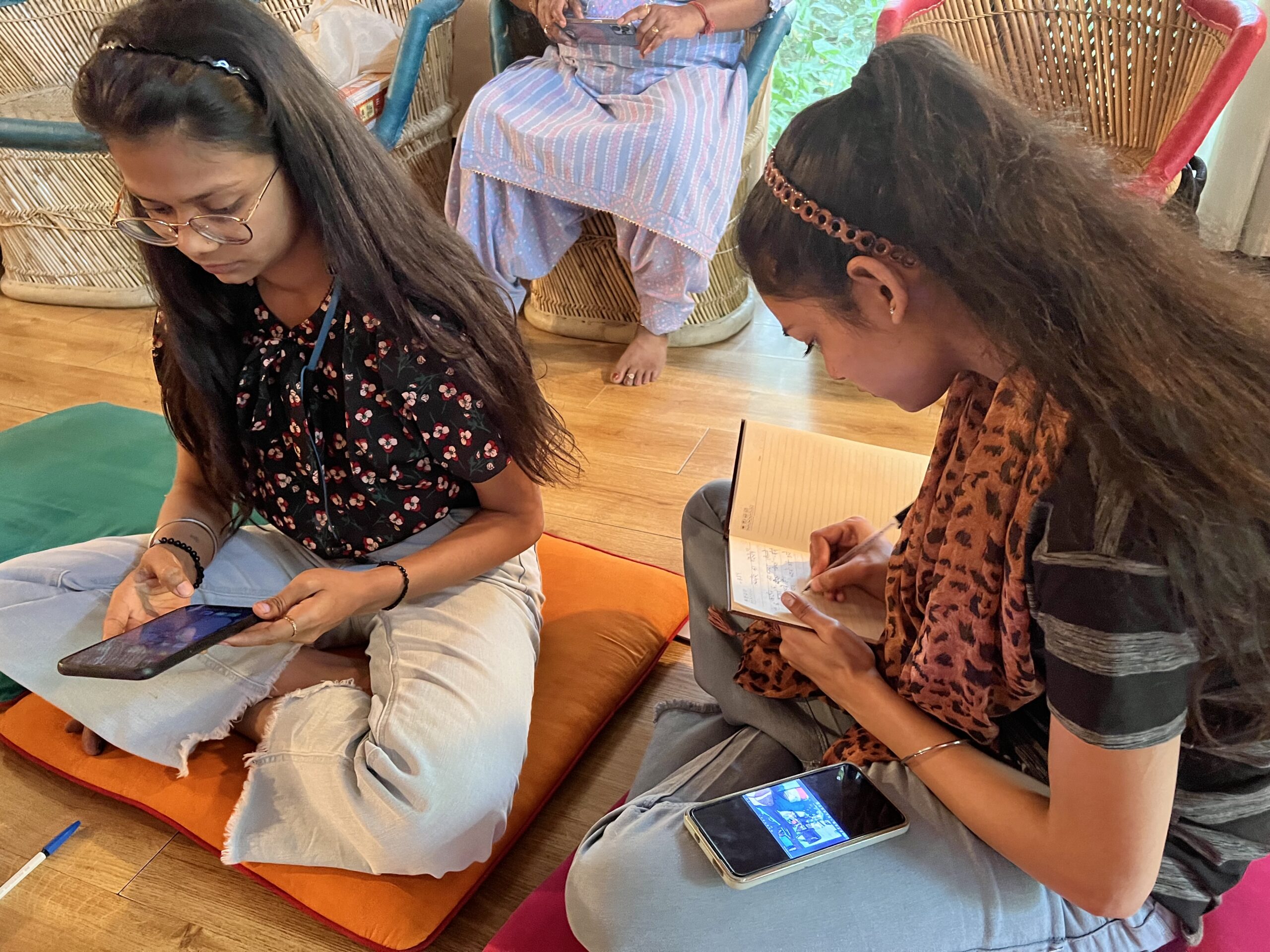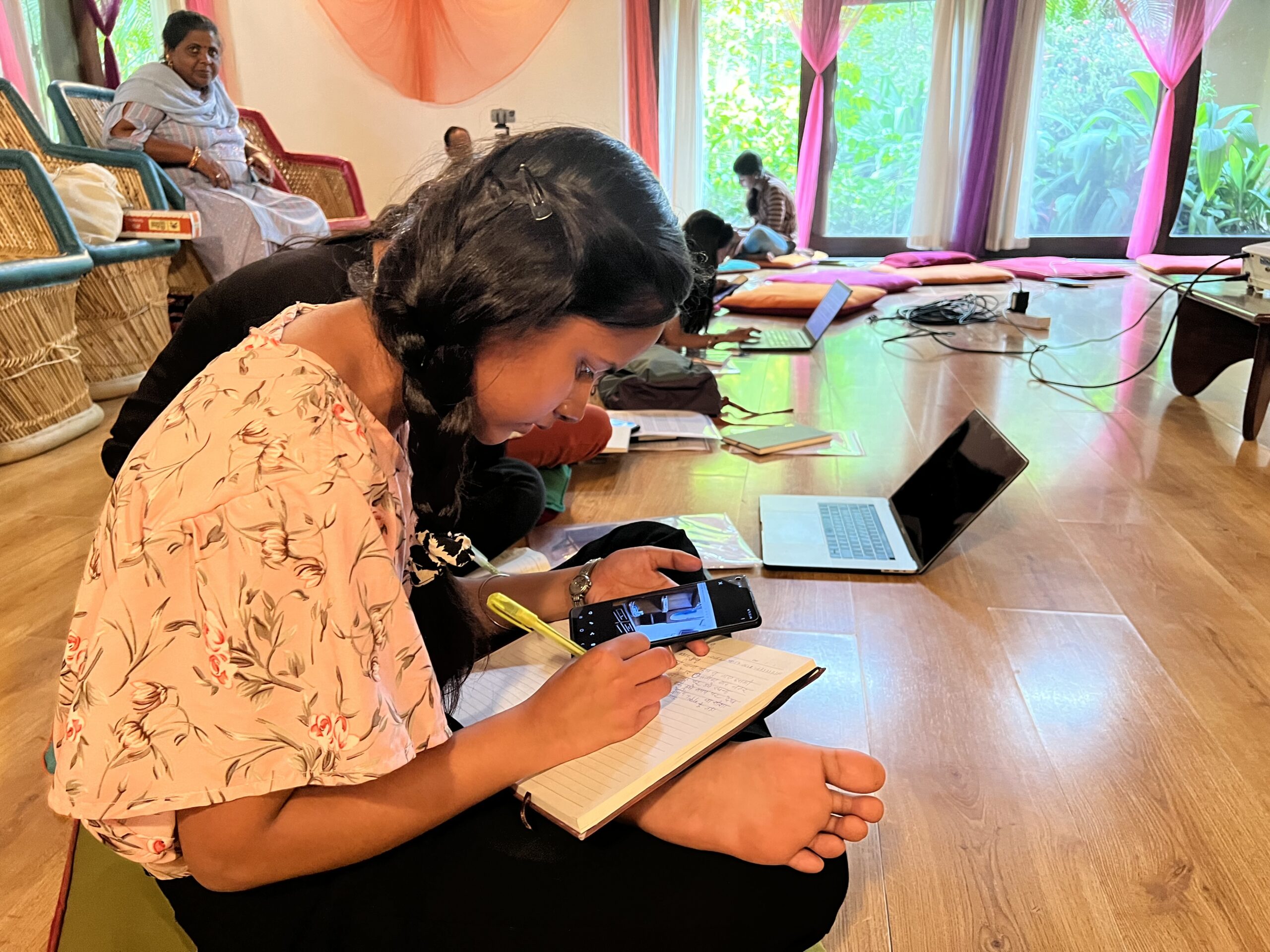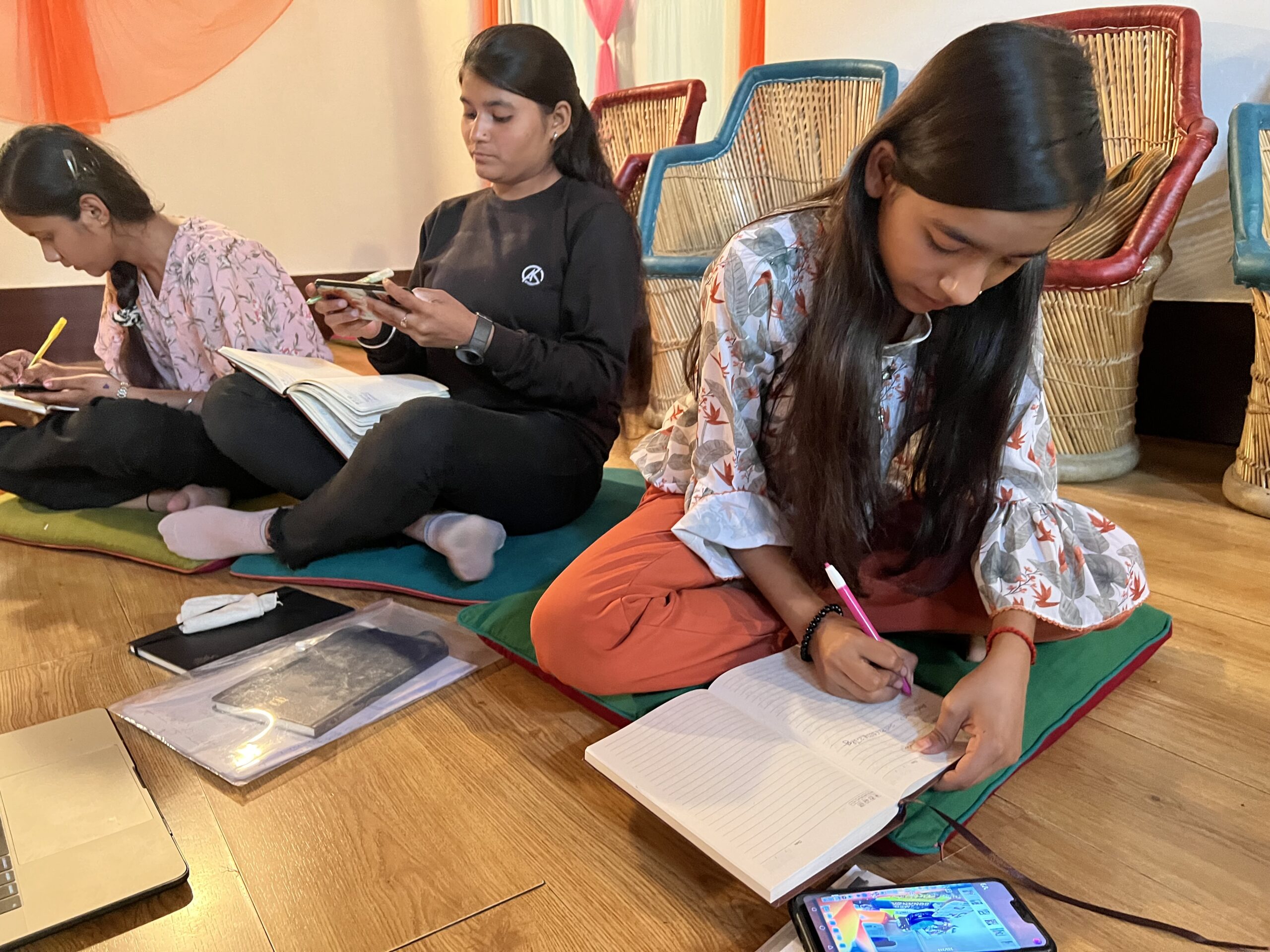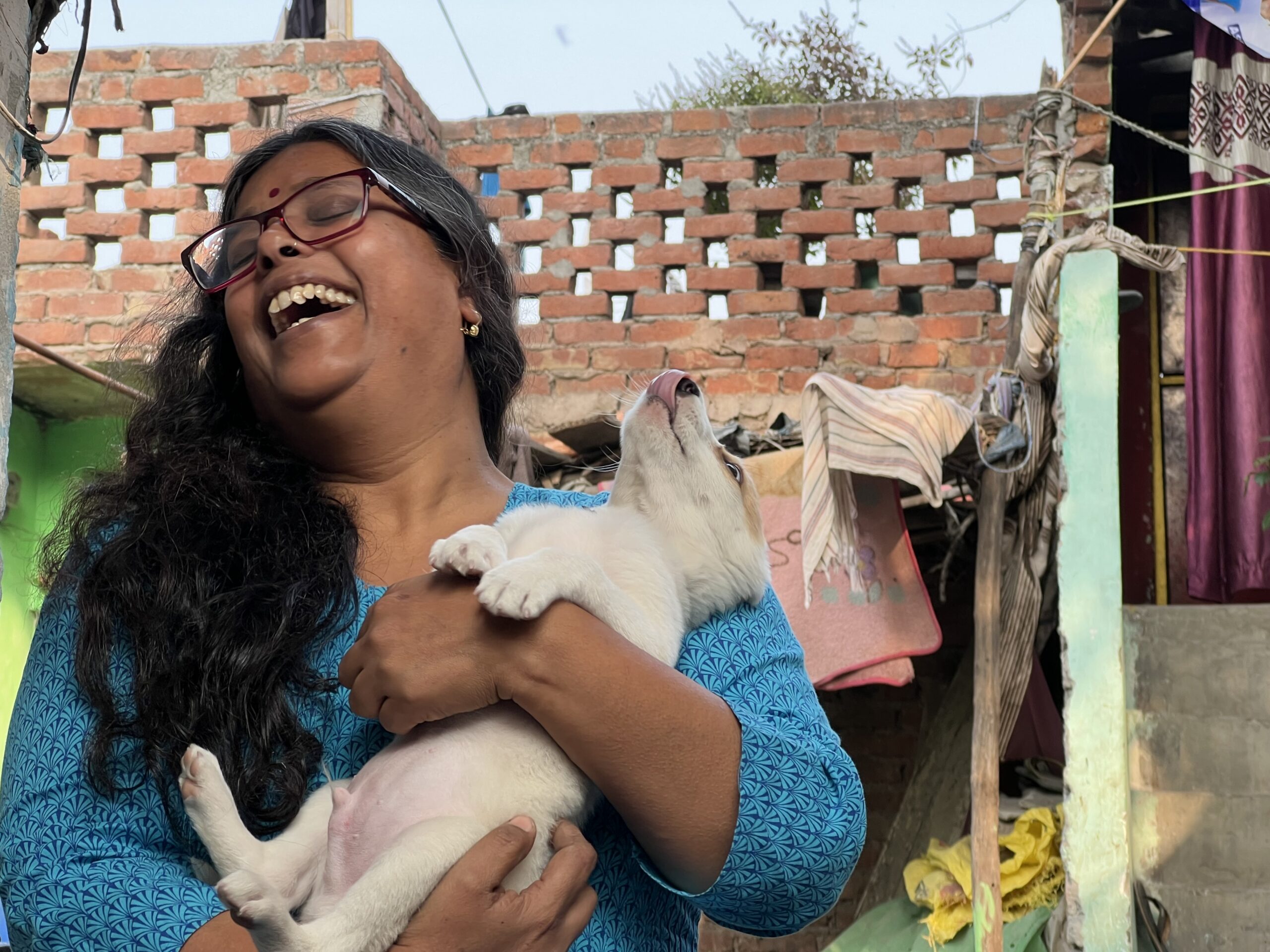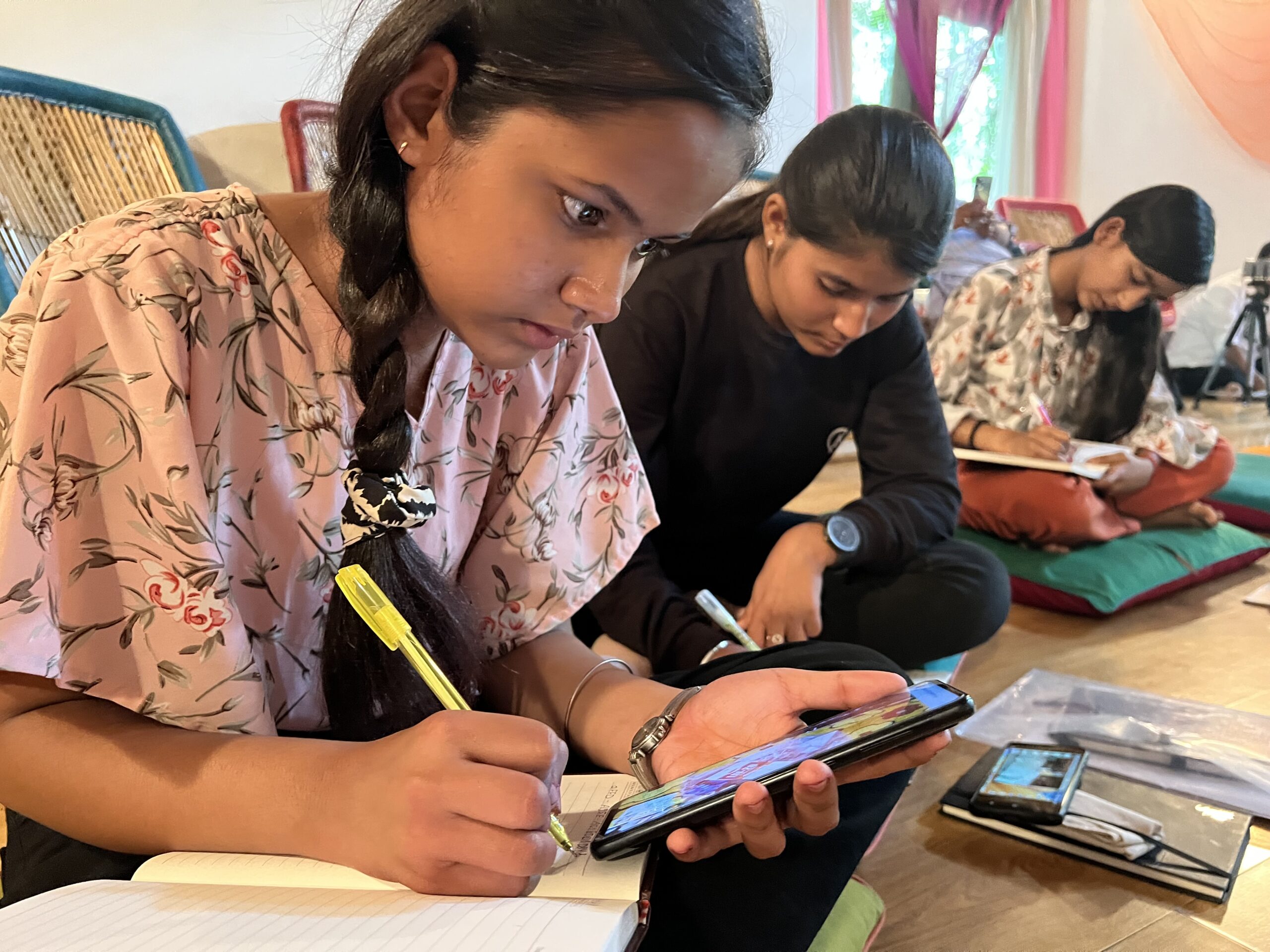हमारे बारे में
About us
बेटिकट मुसाफ़िर की कहानी
The Story of Ticketless Travellers
ऑफिसियल ट्रेलर| निकल पड़े हैं बेटिकट मुसाफ़िर…| अंकुर लेखक समूह
एक सफ़र
प्रो. उर्सुला राव ने 2010 की शुरुआत में अंकुर नाम के एक गैर सरकारी भारतीय संस्था के साथ साझेदारी की शुरुआत की. अंकुर सोसायटी फ़ॉर ऑल्टर्नेटिव्ज़ इन एजुकेशन एक ज़माने से दिल्ली की मेहनतकश बस्तियों में काम करता आ रहा है। इन मोहल्लों के रहवासी अपने दैनिक जीवन को एक विरल ढंग से चलाते हैं। वे ख़ुद अपनी ज़िंदगी पर सोचते हैं और अपने तजुर्बों को क़लमबंद करते हैं। उनकी कही हुई कहानियाँ और आपबीतियाँ बुद्धिजीवियों और हमारे लेखकों—दोनों क़िस्म के लोगों के काम आती हैं। इनके तैयार किए और ख़ाकों से न केवल बाहर के लोगों को इन बस्तियों की ज़िंदगी की एक झलक मिलती है, बल्कि स्थानीय लेखकों को भी अनुसंधान और विश्लेषण के हुनर सीखने के नित नए मौक़े मिलते हैं।
हमारे पुराने लेखक अब ‘कैसे कहा जाए’ की मुश्किल से क़रीब-क़रीब बाहर आकर उस स्थिति में आ गए हैं, जब वे औरों को भी बता सकते हैं कि ‘कैसे कहा जाए’। यह कर्म और व्यवहार के धरातल पर एक साथ पुख़्ता होना है। यह सब एक दिन की मेहनत का नतीजा नहीं है। ये लेखक और हम सालों की लगातार कोशिशों और रियाज़ से आज इस मुक़ाम पर पहुँचे हैं। यह करने से ‘कैसा किया जाए’ यह बताने और बागडोर सँभालने तक की यात्रा है।
इस सफ़र में साथ-साथ चलते, उनसे प्रेरणा लेते और अपने हालात के अनछुए पहलुओं को एक नई नज़र से सामने लाते हुए लगातार नए-नए सदस्य भी कहने-लिखने-पढ़ने की राह पर आगे बढ़ते जा रहे हैं। हमारे नए लेखक मल्टीमीडिया में गहरी दिलचस्पी दिखा रहे हैं। उनके कामों को सामने लाने के लिए एक वेब जर्नल तैयार करने का ख़याल इन्हीं अनुभवों और कोशिशों से पैदा हुआ है।
हमारे लेखक
हमारे लेखक दिल्ली की मेहनतकश बस्तियों के युवा और किशोर-किशोरियाँ हैं। वे अपनी ज़िंदगी और शहर को एक ख़ास शक्ल देने वाली प्रक्रियाओं को रोज़ दर्ज कर रहे हैं। इनमें से बहुत सारे लेखकों ने लिखने की शुरुआत तब की थी, जब वे महज़ छह-सात साल के थे। इस हिसाब से अब उनके पास दस-पंद्रह साल का लेखकीय अनुभव है।
इस दरमियान वे इस कलेक्टिव में शामिल हुए, इसको छोड़ा भी, फिर लौट भी आए; मगर ज़िंदगी के हालात से जूझने में कभी कमज़ोर नहीं पड़े। उनका जुड़ाव चाहे कितना भी कम या ज़्यादा रहा हो, हर एक ने सामूहिक लेखन-प्रक्रिया पर अपना असर छोड़ा है। यों कह सकते हैं कि उन्होंने अलग-अलग ढंग से एक-दूसरे से सीखा है, एक-दूसरे की ज़िंदगियों को स्पर्श किया है, और उन्हें नए रूप और तेवर में ढाला है।
उन्होंने शहर के साथ अपनी मुठभेड़, खींचतान और लेन-देन में जो कुछ देखा-भोगा है—उसे ही दर्ज किया और कर रहे हैं। लेकिन उनकी लिखावट महज़ एक रोज़नामचा भर नहीं है। दरअसल, यह सोच-समझकर किया गया और शोध आधारित लेखन है। उन्होंने इसकी तटस्थ समीक्षाएँ की हैं और अपनी रचनाओं को बार-बार सुधारा और सँवारा है, ताकि दिल्ली नाम के महाशहर को एक पैनी निगाह से देखा जा सके और यह भी जाना जा सके कि यह शहर मेहनतकश वर्ग को किस तरह से, किस हैसियत में देखता है।
जैसा कि इन लेखकों ने दिखाया है—ये मज़दूर ही शहर का पाँव हैं, उन्हीं के सहारे यह शहर खड़ा है। लिहाज़ उनसे यह उम्मीद नहीं की जाती कि वे लिखें या उनके पास बौद्धिक सामर्थ्य हो। लेकिन यह सब लिखना-लिखाना बेहद ज़रूरी है, क्योंकि ऐसे हालात में लिखना बग़ावत का काम भी होता है और अपनी ज़िंदगी, हालात और हर रोज़ जीने की कामयाबी का जश्न भी बन जाता है।
The writers are from working-class neighbourhoods of Delhi. They document their lives and the processes which shape their city. Many of them started writing when they were as young as six and have been writing for ten to fifteen years. Over these years they have joined and left this collective, depending upon their life circumstances. But whatever the dynamics of the association, each one of them influences the collective writing, which in turn touches their lives in myriad ways. They write about what they see and experience in their negotiations with the city. However, their writing isn’t an ordinary recounting. Rather it is a well-researched, reviewed, and reworked piece of work that provides a critical gaze on the city of Delhi and the place it accords its working class. As they aptly describe, workers are the feet of the city; they are not expected to write or have intellectual agency. In such a scenario, writing becomes both an act of protest and celebration of their lives and circumstances.
मल्टीमीडिया
मल्टीमीडिया—दिल्ली की कामगार बस्तियों की ज़िंदगी में उतरने और उसको महसूस करने का एक ज़रिया है। यह संग्रह दिल्ली के ही नौजवान लेखकों की लिखी सामग्रियों से तैयार किया गया है। इस तरह यह मीडिया मुख्यधारा के उस नैरेटिव का जवाब देता है, जिसमें ये मेहनतकश या तो अपराधी की तरह दिखाई देते हैं या ग़रीबी और गंदगी में रहने वाले पीड़ित समुदाय की तरह।
इस मीडिया के जरिए हमारे लेखक आपको अपनी सहज ज़िंदगी, अपनी परेशानियों, कठिनाइयों और दुख-सुख का एहसास कराना चाहते हैं। मल्टीमीडिया का फ़ॉरमैट इन रचनाकारों के मोहल्लों में दाख़िल-शामिल होने की कुंजी है। यह डिजिटल संसार उन्हें अपनी बस्तियों को शहर के बाक़ी लोगों से जुड़ने-जोड़ने का एक रास्ता मुहैया कराता है। मल्टीमीडिया वेबसाइट एक साझा पुल है, जिसके ज़रिए वे अपनी आवाज़ बाक़ी दुनिया को सुनाना चाहते हैं।
The multimedia is a deep sensorial dive into the lives of the working-class communities. Created from the texts of the writers from Delhi, the media serves as a counterpoint to the mainstream narrative, which paints them as either criminals or victims living in poverty and squalor. Through media, the writers want to visualize and communicate their own lives’ joys, tribulations, struggles, and sorrows. The multimedia format gives access to their neigh- bourhood. The digitized world gives them a route to connect their communities to the city at large. The multimedia website serves as a collaborative bridge through which their voices are curated to the world.
इल्म और आवाज़
बेटिकट मुसाफ़िर कुल मिलाकर ज्ञान की सहरचना का सफ़र है। यह हमसे आवाज़, लेखन, नज़रिए और आलोचना के बारे में नैतिक सवाल पूछता है। ‘बेटिकट मुसाफ़िर’ पेशेवर मानवशास्त्रियों और स्थानीय लेखकों के बीच के फ़ासले को मान्यता भी देता है और उसको पाटता भी है। यह इस बात पर ज़ोर देता है कि संरचनात्मक भेद सिर्फ़ साझेदारी से दूर नहीं किए जा सकते। इसीलिए, यह परियोजना साझेदारी को अपना मक़सद नहीं, बल्कि सिर्फ़ एक शुरुआत भर मानती है। यह तो स्थानीय लेखकों को अपनी आवाज़ ढूँढ़ने और अपने हालात का ज्ञान और बयान रचने के तरीक़े ढूँढ़ने में मदद देने का माध्यम है। इन कहानियों में स्थानीय अनुभवों की गूँज है, स्थानीय श्रोताओं की झलक है और इसलिए इनमें स्थानीय प्राथमिकताएँ नज़र आती हैं/आएँगी। ऐसा नहीं है कि इन लेखकों ने लेखकीय सफलता से अपनी ज़िंदगी को बदल डाला है। वे कहने को आज भी ‘बेटिकट’ ही हैं, मगर इसका मतलब यह नहीं है कि उन्हें सफ़र का हक़ नहीं है!
Ticketless Travellers is ultimately a journey to co-create knowledge. It asks important ethical questions about voice, authorship, perspective and critique. It acknowledges the gap between anthropologists and the local authors; structural differences will not be overcome through collaboration alone. Instead, the project sees collaboration as a starting point, not an end point. It sets out to help local writers find their own voices and produce their own knowledge of the conditions under which they live. These stories have local resonances, local audiences, and reflect local priorities. The writers do not necessarily radically transform their lives. They remain “ticketless”, but this doesn’t mean that they cannot travel.
सहायक संस्थाएँ
Supporting Institutions
अंकुर सोसाइटी फॉर अल्टरनेटिव्ज़ इन एजुकेशन
Ankur Society for
Alternatives in Education
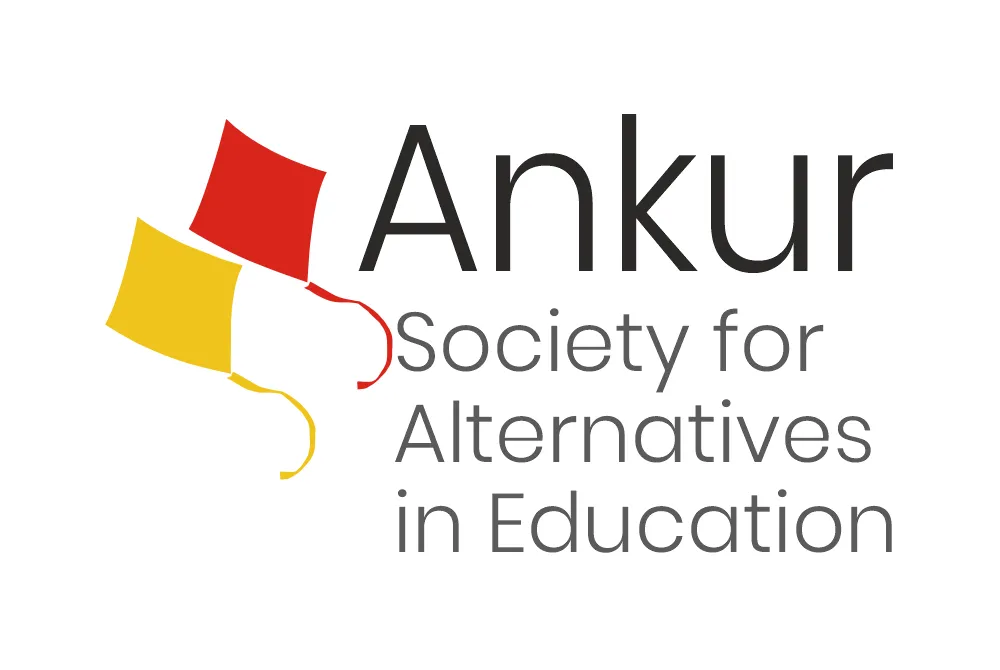
अंकुर तीन दशकों से अधिक समय से दिल्ली के हाशिये पर रहने वाले इलाकों में बच्चों, युवाओं और समुदायों के साथ प्रयोगात्मक शिक्षाशास्त्र के क्षेत्र में काम कर रहे हैं। अंकुर शिक्षा के माध्यम से हाशिए पर रहने वाले लोगों को सशक्त बनाना चाहता है, ताकि वे अपने अनुभवों और सन्दर्भों पर विचार कर सकें और गरिमापूर्ण जीवन के लिए प्रयास कर सकें ।
For more than three decades, Ankur has been working in the field of experimental pedagogy, with children, young people, and communities in marginalised neighbourhoods of Delhi. Ankur seeks to empower the marginalised, through education, to reflect on their experiences and contexts, and strive for a life of dignity.
मैक्स प्लैंक इंस्टीट्यूट फॉर सोशल एंथ्रोपोलॉजी
Max Planck Institute for
Social Anthropology

मैक्स प्लैंक इंस्टिट्यूट फॉर सोशल एंथ्रोपोलॉजी सामाजिक – सांस्कृतिक मानवविज्ञान में अनुसंधान के लिए दुनिया के अग्रणी केन्दों में से एक है । मैक्स प्लैंक इंस्टिट्यूट की सभी शोध परयोजनाओं में सामाजिक परिवर्तन का तुलनात्मक विश्लेषण आम बात है, यह मुख्य रूप से इस क्षेत्र में है कि इसके शोधकर्ता मानवशाश्त्रीय सिद्धांत में योगदान करते हैं, हालांकि कई कार्यक्रमों में महत्व और राजनीतिक सामयिकता भी लागू होती है । फील्डवर्क लगभग सभी परियोजनाओं का एक अनिवार्य हिस्सा है ।
सन्स्थान में तीन शैक्षणिक विभाग है :
आर्थिक प्रयोग का मानवविज्ञान
राजनीति और शासन का मानवविज्ञान
कानून एवं मानव विज्ञान
The Max Planck Institute for Social Anthropology is one of the world’s leading centres for research in socio-cultural anthropology. Common to all research projects at the Max Planck Institute is the comparative analysis of social change; it is primarily in this domain that its researchers contribute to anthropological theory, though many programmes also have applied significance and political topicality. Fieldwork is an essential part of almost all projects. The Institute has three academic departments: Anthropology of Economic Experimentation, Anthropology of Politics and Governance, and Law & Anthropology.
लीपज़िग विश्वविद्यालय
Leipzig University
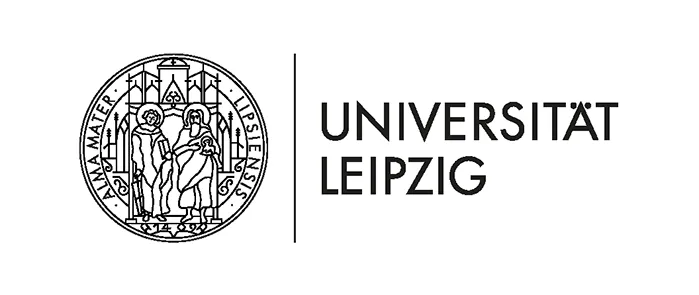
लिपजिग विश्वविद्यालय की स्थापना 1409 में हुई थी और जब शीर्ष श्रेणी के अनुसंधान और चिकत्सा विशेषज्ञता की बात आती है तो यह जर्मनी के अग्रणी विश्वविद्यालयों में से एक है। यह मानविकी और सामाजिक विज्ञान से लेकर प्राकृतिक और जीवन विज्ञान तक विषयों की एक अनूठी विविधता प्रदान करता है ।
Leipzig University was founded in 1409 and is one of Germany’s leading universities when it comes to top-class research and medical expertise. It offers a unique variety of subjects, from the humanities and social sciences to the natural and life sciences.
जर्मन रिसर्च फाउंडेशन
German Research Foundation

डॉयचे फ़ोर्सचुंग्सगेमिंसचाफ्ट (DFG, जर्मन रिसर्च फाउंडेशन) जर्मनी में केंद्रीय स्वशासी अनुसंधान निधि संगठन है। डीएफजी विज्ञान और मानविकी की सेवा करता है और विश्वविद्यालयों और गैर –विश्वविद्यालय अनुसंधान संस्थानों में अपने सभी रूपों और विषयों में उच्चतम गुणवत्ता के अनुसंधान को बढ़ावा देता है । ज्ञान – संचालित अनुसंधान के क्षेत्र में अकादमिक समुदाय द्वारा विकसित परियोजनाओं के वित्तपोषण पर ध्यान केंद्रित किया गया है।
The Deutsche Forschungsgemeinschaft (DFG, German Research Foundation) is the central self-governing research funding organisation in Germany. The DFG serves the sciences and humanities and promotes research of the highest quality in all its forms and disciplines at universities and non-university research institutions. The focus is on funding projects developed by the academic community itself in the area of knowledge-driven research.
